|
2/7/2024 0 Comments Data Breach | Implications and Guidance for School and MAT Leaders with SchoolPro TLCOur sponsor SchoolPro TLC shares here their GDPR and Data Protection expertise in understanding the Birmingham Children’s Services Data Breach and the implications and guidance for school and Multi Academy Trust (MAT) leaders. In May 2024, the Information Commissioner’s Office (ICO) issued a reprimand to Birmingham Children’s Trust Community Interest Company (BCTCIC) for an inappropriate disclosure of a child’s personal information. This unfortunate incident underscores the critical importance of robust Data Protection practices, especially when dealing with sensitive data related to children and criminal offences. As leaders in schools and MATs, understanding the implications of this reprimand and implementing key actions can help safeguard your institutions from similar breaches. Overview of the Incident
On 10 November 2022, BCTCIC experienced a significant data breach involving the inclusion of sensitive information about another person in a Child Protection Plan (CP Plan) sent to a family. This breach occurred within the Child Protection and Review (CP&R) department, which routinely handles both personal data relating to children and criminal offence data. The specific incident involved two neighbouring families. Family A had raised concerns about interactions between their child and Child X from Family B. During the formulation of a Child Protection plan, information from a separate strategy meeting with West Midlands Police, containing serious criminal offence allegations against Child X, was inappropriately included and this sensitive data was subsequently disclosed to Family A, resulting in a violation of Data Protection regulations. Key Findings and ICO Reprimand The Information Commissioner's Office (ICO) found that BCTCIC had violated Articles 5(1)(f), 32(1)(b), and 32(2) of the UK General Data Protection Regulation (UK GDPR). Articles that mandate personal data must be processed securely to protect against unauthorised or unlawful processing and accidental loss, destruction, or damage. Several key issues were identified:
Implications for Schools and MATs The ICO have highlighted that Schools and MATs must be vigilant to avoid similar data breaches: 1. Develop Robust Policies and Procedures Ensure that your Data Protection policies include specific, detailed guidance on handling sensitive personal data. This should cover what data is appropriate to share and under what circumstances. 2. Implement Role-Specific Training General Data Protection training is essential, but it should be supplemented with role-specific training. Staff should understand how Data Protection principles apply to their roles within the context of their setting. SchoolPro TLC are developing SEND and Designated Safeguarding Lead-specific Data Protection training to help boost staff confidence when responding to information requests. 3. Conduct Regular Audits and Reviews Regularly review and audit Data Protection practices to identify and mitigate risks. Look at who the school has shared information with, how much and the method for exchange. 4. Regular Records Review Create time to review the records you hold, checking the quality and accuracy. Feedback to staff to support the development of a safer culture within the school. Actions and Recommendations Based on the ICO’s recommendations and the lessons from the BCTCIC incident, there are specific actions for schools and MATs to consider.
Conclusion The reprimand issued to Birmingham Children’s Trust serves as a stark reminder of the importance of robust Data Protection practices, especially when dealing with sensitive information related to children. By understanding the implications of this incident and implementing the recommended actions, schools and MATs can better protect their data, ensure compliance with data protection regulations, and better safeguard their students. As leaders, it is our responsibility to foster both a culture of Data Protection and Child Protection within our settings, by going above and beyond to ensure the safety and privacy of all individuals whose data you handle. Data Protection is Child Protection. By Ben Craig, Director, SchoolPro TLC Ltd
0 Comments
27/6/2024 0 Comments Interview with Paul Brooks, Retiring Chair of Kingsbridge Community College Governing Body and the SWIFT Trust Board “When I was Deputy Principal, I used to say that every child in our school needs to enjoy our school and to come out at the end of each day and know that they have enjoyed something in their lessons. I believe now, as I believed then, that it is possible.” For this final interview of academic year 2023 - 2024, we were glad to speak to Paul Brooks, who is retiring from the Kingsbridge Community College Governing Body. Mathematician graduate Paul, started his teaching career in 1981 in Birkenhead and went onto teaching and leadership roles in Bideford, Bristol and Swansea, and gained an MEd in Maths Education at the University of Exeter. In 1998, Paul became Deputy Principal at Kingsbridge Community College (KCC) and played a key role in Ofsted inspections, culminating five years later in an Outstanding judgement. Paul led KCC’s successful bid to be a Specialist School in Science, Maths and Performing Arts and was keenly involved in the bid to become one of the first Teaching Schools, South West Teaching School Alliance (SWTSA), which he led from 2011 to 2016; growing a membership of 12 schools to over 130. Curriculum was always a key role for Paul as Teaching and Learning Lead; as well as Development Lead and Facilitator for Leading Schools South West on their NPQSL programme. In retirement from his leadership role at KCC, Paul has been a dedicated member of Kingsbridge Local Governing Body and also Chair of the SWIFT Trust Board. Using his mathematical tactical skills perhaps, Paul is a keen County Standard Chess Player and jointly runs Newton Abbot Chess Club and for many years he was President of the Devon County Chess Association. As a tribute to Paul and the work of all Governors in Schools and Mulit Academy Trusts, we are delighted to share Paul's reflections as he steps down (once and for all) at the end of this academic year. 1. What has been most personally rewarding from your involvement with the Kingsbridge Community College Governing Body? It has been most personally rewarding to continue to be involved in what I think is a really top-class organisation that has a very important role in our educational landscape. I have been involved in Teaching Schools from their very beginning and I immediately believed it was the very best way of developing teaching and learning within our schools. I think teaching at the moment is as hard as it has ever been, and maybe even harder and I am passionate that teachers from the start of the career and all the way through, have the opportunity to experience the very best training; because when we come into teaching, I think we all have an idea of what makes a good teacher, which essentially comes from our own background and provides a great starting point for our classroom practice. But developing and improving that practice can be challenging and I think the only way you can do it is if you have from the very start of your career the opportunity to experience high-quality professional development and support in your school. For me, this can come about by schools working together and learning from research and striving to ensure that their teachers benefit from such opportunities. This way, I believe that teachers can get the very best outcomes for their students. My involvement over the last few years as Chair of the SWIFT Trust Board has given me the opportunity to see and be impressed by the way in which SWIFT has developed from what was an idea of schools collaborating together by sharing data and seeking improvements in a much more structured way. Teaching School Hubs, like SWIFT, are providing opportunities that enable the very best development in our teachers and school leaders. That is why I am so excited that SWIFT is moving into initial teacher training, because I think that keeps the Golden Thread (as the Department for Education terms it) going from the start of a teacher's career with the Appropriate Body Service and Early Career Framework to National Professional Qualifications. For me, that is the very best model and I consider this to be a golden opportunity in delivering that best model. Being a Governor on the SWIFT Trust Board and working with the other Governors is a way to give back in helping to see and contribute to the work that is being done, monitoring and checking this work and supporting it to be the very, very best. 2. And what has been the most challenging? Truthfully, I have been pleasantly heartened in how well the SWIFT programmes have been progressing. The Appropriate Body Service and Early Career Framework roles are being led so effectively that targets have been exceeded in terms of the volume of participants and their feedback is very positive. I think that the SWIFT Team is doing a magnificent job in continually implementing, developing and monitoring this work. For me the main challenge going forward will be the successful implementation of initial teacher training, because that requires a much broader range of stakeholders and very thorough monitoring. The provision will be subject to Ofsted inspections and hence, the biggest challenge will be ensuring this provision is as effective and robust as possible. Indeed, I am a tad sad that I am leaving when the course is about to start at the end of August, because I think that it has the potential to be very exciting for SWIFT. The current biggest challenge for all Governing Bodies is to support their schools in what are very difficult financial circumstances. Schools are having to make decisions now much more on the basis of what they can afford, than on the basis of what is best for their students, than at any other time over the past 25 years that I have been involved in school leadership. Governors have a demanding role in supporting schools to make the very best decisions in these constrained circumstances. 3. What has been the most significant change during your tenure?
In my role as Chair for the SWIFT Trust Board, I would say that, the most significant change has been the move to initial teacher training and as previously mentioned, I think that this has the most significant potential in terms of SWIFT developing further as a leading provider. In terms of education as a whole, I think the whole Teaching Schools movement has been the most significant development for me and it certainly made a step-change in my role within school, when back in 2011 funding was made available for a few schools to develop structured opportunities for collaboration, training and development, alongside a professional development programme for senior leaders. It was an inspired decision and I think those participating schools have certainly benefited more than any other innovation. Previously, there was lots of chatter about how schools could work together, but without a real structure. It can only be a good thing now that we have the joined-up approach through Teaching School Hubs from the start of a teacher’s career to the end with opportunity to grow and develop and access high-quality professional development. Hence, I believe the Teaching School Hubs initiative has been the most important innovation over my past 40 years in education. 4. How has your position as Chair of the SWIFT Trust Board benefitted you? It has been the opportunity to see the excellent work that is going on and to feel as though I am a small part of the machinery in developing the brilliant organisation of Education South West and SWIFT. I have also valued keeping up-to-date with what is happening and the way in which here in the local area we are providing so many opportunities and the enthusiasm in which those opportunities are being embraced. To me, this has been a very positive personal development, because I am passionate about the idea of learning from other professionals and research and the fact that we have a successful organisation that is leading on this development work. 5. What would be your number one wish for schools in the future? I would wish that every school and every teacher in the country has the opportunities to grow ultimately to support the best learning of our students. I only hope that the future Government has the wisdom to continue to develop and strengthen the role of professionals learning from other professionals and to give schools the funding to do so. The other big elephant in the room for me, is the appropriateness of the curriculum for the modern student. I think that some content for Year 6 English lessons is reminiscent of my first year at grammar school in 1969. It might be useful, but it is not going to motivate and enthuse those students who find academic learning difficult. When I was Deputy Principal, I used to say that every child in our school needs to enjoy school and to come out at the end of each day and know that they have enjoyed something in their lessons. Not only the social side, but from a course of study that they loved and I believe now, as I believed then, that it was possible. What I hope for the future is that more common sense comes to the fore and we recognise that if we wish to have “a world class education system,” we need to resource it as a world class education system. Particularly in terms of the curriculum. My role in school was to oversee the curriculum and I think that it is impoverished at the moment for a large section of the school community. I would say that at least a quarter of the school population has a curriculum that is not really fit for purpose. I would like to see a big rethink about the curriculum, the way in which it is taught and what is on offer for our students, particularly for those who are not as academic, and who would thrive with more practical learning opportunities. I believe that many of the problems we currently have with attendance and behaviour would be alleviated if we got the curriculum right, and enabled more students to enjoy and achieve success in their learning. As an example, we used to bus some of our students to South Devon College for one or two days a week to study practical subjects that they were genuinely interested in, such as car mechanics and beauty therapy. This encouraged buy-in to the school as they really wanted to go there and it had a big impact in improving their behaviour. However, the narrowing of the curriculum by the new Progress 8 school performance measure and tightening budgets meant that we regrettably had to stop this provision. I would like to see politicians and school leaders get together to devise a curriculum that actually suits the students in school. Because at the moment, when I look back to when I started teaching, the curriculum now is only slightly better than it was then because now we have the National Curriculum and everyone has an entitlement and the teaching quality is much higher than it was 40 years ago. Also, the way in which teachers are developed is much better than it was at the start of my career. But the school curriculum itself hasn't changed with the times and still has lots of room for improvement. I remain hopeful and know that school and Trust leaders are working hard to provide the best education for their students and the work of SWIFT is supporting this work as one of the backbones for professional development. We warmly thank Paul for his commitment and loyalty on the KCC Governing Body over the past 25 years, including his recent membership of the SWIFT Trust Board and we wish him a happy and fulfilling retirement. Interview by Jude Owens, SWIFT Executive Assistant  “If everyone is moving forward together, then success takes care of itself.” (Henry Ford) This time last week, it was lift-off for the SWIFT 2024 Summer Conference at the new venue of the Future Skills Centre in Exeter. Hosted by Executive Director, Martin Director and Jen Knowles, Director of Teaching School Hubs, delegates fastened their seatbelts for what was to be a supersonic day. Education South West (ESW) CEO, Matthew Shanks’ welcome set the tone for the conference in considering the current challenges and key themes for schools and leaders - with a call to action for collaboration across schools in the South West. “Our job is to help every single child.” Matthew reflected how alas, the system is not currently built for collaboration due to disincentivizing league tables and a lack of support and funding for children’s services. However, with ESW the lead Trust for the Kingsbridge Teaching School Hub, Matthew echoed the SWIFT ethos of selfless collaboration that helps to make a better society and fulfils our vision of creating high-quality opportunities for staff to learn, develop and connect. So that all children, especially the disadvantaged, achieve the best educational outcomes. After the fantastic first three years as Teaching School Hubs, the statistics are splendid to behold. 3,295 teachers and leaders have engaged in over 80,000 hours of training with SWIFT that importantly, practicably, and hearteningly has a direct impact on the quality of education and lives of young people in South West schools. And the good news is that SWIFT is committed to building on this successful support.  On that stirring note, the first keynote speaker took to the stage. Presenting on “Why nice isn’t working: why relational currency supports positive behaviour,” teacher, behaviour specialist, author, education reformer and advisor, Paul Dix began by sharing his own experience as a 24-year-old teacher. Re-living the case of the humbling home visit to his pupil, Robert; Paul recounted the discovery of his positive notes that Robert had previously crumpled up (and Paul assumed to have been thrown away) and yet were pinned-up on Robert’s bedroom wall, in an otherwise nearly empty home. Heart-rendering. In a talk that was entertaining and energising with visual props, Paul highlighted the importance of relationships being predictable, systematic, consistent and habitual. Think of the primary children who slipped happily into the habit of shaking the hand of their teacher every morning on arrival into class and who were disappointed when she suddenly stopped this hands-on habit. Such was this happy habit, even parents came into school to shake the teacher’s hand as well. Relational practice begins with the easy actions. The positive noticing, in a pure and nuanced way and it is this emotional currency that leads to trusting relationships. “There’s no teacher in the world who doesn’t know the power of positive noticing.” In an endearing peer-to-peer relationship-building story, Paul shared the example of the school who gave all their Year 8 pupils a brown postal label. With echoes of much-loved national treasure, Paddington Bear, the pupils were all invited to write something nice about each other on the label, which they then swapped and tied onto their bag or tie. Instead of teen uneasiness, these positive peer labels stayed visibly tied on for a long time. Get your labels ready, and make a date in your diary on Wednesday 13 November 2024 for Positive Noticing Day to celebrate in your schools and organisations. By looking at the behaviour of adults first, this starts the change. It can be hard work to do the right thing and some people might prefer the easier route. But as Paul reminded us, it is the children who suffer when adults take the easy route and ultimately, scripted intervention does not work. Clear away the bindweed! Remember the leadership gauge of what you are doing, the why and the priorities. Paul invited delegates to consider three behaviours that work with children and the suggestions were uplifting. Smiling, clarity, resetting, listening, curiosity, emotional acceleration. Hands kept popping up. Be ready, respectful and safe and know that consistency is worth fighting for and understand how you define this consistency. Knowing adults will listen and knowing there will be a positive response is essential. In terms of implementing relational practice and bringing the whole school together, Paul compared the tortoise and the hare leaders. The hare leaders could lead a two-minutes pupil spotlight in staff meetings where colleagues with the best knowledge present a 360 view on individual pupils to provide and show how the child learns best and gather strategies from other members of staff. A bank of small spotlights builds up, and is a practical way before going into the classroom to equip all teachers with strategies, even if they do not teach a specific child, it helps to build relational practice across the school. Another top tip was the use of termly Threads that state three rules to start a whole school conversation to encourage commitment from both staff and students, that builds each half term on the previous Thread. In a memorable film clip, Paul showed the young football team standing stoically in the rain and how one-by-one in an image of wraparound love and care, each teacher put their own jacket around the child in front of them to protect them from the rain. Back to the hare and the tortoise, the slower of the duo builds their knowledge before making changes, with high-quality flexible training and then drip feeds strategies each half term. In other words, there is a place for both the hare and tortoise.  SWIFT works with select sponsors who provide a range of educational services to help boost our high-quality professional development offer to schools. As the first of the two conference sponsors, Vice President, Matt Tiplin introduced ONVU Learning: deep thinkers of teaching and learning translated into classroom technology. Teachers are empowered to review their own practice to provide a better methodology by outcome and with his own story as a past teacher, Matt invited the audience to remember a good teacher from their own life. Find out more about ONVU Learning at the FREE Excellent Teachers Create Excellent Memories webinar on Thursday 11 July 2024 from 0830 – 0900.  Delegates could then choose one of two morning breakout sessions. Associate Professor at the University of Warwick, Institute for Employment Research (IER) and Founding Director of CareerChat (UK) Ltd, Deirdre Hughes OBE led the session on “Leading with Vision: transforming education for tomorrow’s workforce.” Leadership, is an opportunity to make a difference as transformational leadership. Even if there is no single way to transform the educational system, it is a line of sight to work. Otherwise, divisions can widen. Deirdre encouraged leaders to find the value in understanding the relevance of education in our fast-changing world of work with spiralling issues, such as multiculturalism and wellbeing. Find personal development for decisions and pathways and changing attitudes to the workforce for life-long learning and ways to inspire amidst the uncertainty and change. Learn collaboratively with a commitment to projects and how to develop skills for the future. Consider changes to relaxing the curriculum to foster flexibility and see the relevance of learning. With her background expertise in career guidance, Deirdre noted the value of rooting career development into the curriculum and bringing employers into the classroom. Education is no longer only about didactic teaching; but rather about learning through collaborative, experimental, and community-based projects that address issues about which students care deeply. There is a need for places and spaces where parents see the relevance and want to help the children in their care and to personalise the learning experience with digital tech. But what can AI do for us to help us to do together? “The need for education is to prioritise what it means to be human.” Find out about CareerChat (uk) at the FREE Intelligence Revolution and How We Can Help Young People Prepare for a Transformed World of Work webinar on Thursday 4 July 2024 from 1400 – 1530.  Former Chair of Children and Young People’s Mental Health Coalition, and author of “The Mentally Healthy Schools Workbook,” Dr Pooky Knightsmith led the other breakout session on “A Whole School Approach to Mental Health.” Pooky outlined the following six areas of focus in schools with lots of helpful tips and invited the audience to consider where they fit on a scale of 1-10: 1. Staff are Happy and Healthy If schools do not get it right for staff, it is challenging to get it right for children and community. Leaders are role models and look after themselves first as children learn from what they see adults seeing and doing and sustainable change must have staff at its heart. Happy staff feel heard: their opinions matter, whatever their background and diversity. Happy staff are mentally and physically healthy. Think about small changes to ensure staff get fresh air, access to healthy food, have time to eat. Think how you acknowledge teachers' workload. Mastery is every member of staff turning up to do their job and do it well, which in turns supports their wellbeing. Passion will make the difference in our job and help to connect with colleagues. Look beyond Ofsted and ticking boxes. 2. Our Setting Feels Safe and Welcoming The biggest difference to support a child is a calm adult. Meet children with a smile. Walk through your school in the shoes of a stranger and be honest about all the things you see/feel/hear/smell. Children need to know their school is safe place. Make your school a calm environment that meets the needs of neuro-divergent children. Be predictable. Meet the needs of all children and look out for the quiet students too. Be brave to share when things do not go quite right. Be an authentic and brave leader. 3. Every Learner Feels Heard Think how you hear the quiet voices and the angry voices. Think about inclusion and diversity and any groups who are missed out. Think how you listen and how to help those children who are reluctant to put their hands up. 4. We Recognise and Support Our Most Vulnerable Learners Work with the child, not for them. Hear their ideas and think how you can support them. Quality first teaching. Think how you get your classroom to be engaging, exciting and accessible for all learners and what universal approaches can be in place. All staff ‘keep a child in mind’ on rotation and ensure each child has at least one trusted adult. Let them choose and be led by them. 5. Families Positively Engage Parenting is hard. Have high expectations of parents and if they do not live up to them, question what we are doing that is letting them down. Make sure you use their time well. Be approachable: see parents as people and humans. Use their names, ask connecting questions, share good news with homes not used to hearing it. Think what you can do tomorrow to make a difference. 6. Help is Sought When Needed Show children there are no barriers. Celebrate and role model help -seeking and problem solving.  Educational journalist, former teacher, and co-founder of Teacher Tapp, Laura McInerney presented the next keynote on “Education Trends.” It was Laura’s form tutor and Teacher of French, Miss Watson who inspired her to become a teacher; noting that the best teacher gets you an A*, even when you do not necessarily like the subject. It was Miss Watson who brought a newspaper article into school on Laura’s favourite author, Terry Pratchett and her positive noticing made Laura want to be a Miss Watson - and she has followed her example ever since in always wearing a jacket. Ten years ago, Laura’s yellow jacket (plus yellow six-inch heels) had a special outing when she was taken to court by Michael Gove and Dominic Cummings for being "vexatious" about a Freedom of Information Act request on the hot topic of free schools. (A longer and highly entertaining court case story cut short, it ended well for Laura). Teacher Tapp came about from Laura’s editorials in Schools Week based on discussions on a minority of teachers and schools. In 2017, Laura combined forces with Professor Becky Allen who wanted to survey teachers to gather data and the dynamic duo created the highly popular and successful Teacher Tapp. Signed-up teachers are sent daily questions that gather data and help to stop misinformation and spot trends. One of the most controversial questions, would you believe, is whether the school provides free tea, coffee and milk. Turning to another popular conversation topic for us all, the weather, Laura related her own experiences of living in Michigan, part of Tornado Alley. Unlike the UK, where the weather stops play, and people get angry, in the USA, everyone stays at home and does not get angry. The same could be said of reactions to education policy. When the weather turns stormy, we need to change the response, and seek shelter until it has passed. There is no point shouting! With her evident instincts for spotting trends, Laura considered some of the big challenges in education with simple causes. Consider recruitment and retention as a familiar educational trend. Teaching is not any less good, but there are basic challenges. Fewer 22-year-olds are joining the profession, and are not offsetting those exiting the workforce. Hence lots of squeezing on teacher numbers. Consider the high number of 12 – 13-year-olds coming through to secondary, and increasing pressures on schools with increasing behaviour issues and levels of complexity. Whereas at primary, pupil numbers are falling over the next 10 years. The recruitment of Teaching Assistants, Receptionists and other administrative staff needs a re-think due to societal progress. To date, these low-paying roles have been taken by women who needed term-time work. But as the employment market is changing, this trend is also changing as there is more career choice. Vexatious complaints about schools are rising because there are more children, medical advances, Education, Health and Care Plans (EHCPs) have been de-stigmatised and Local Authorities have been given responsibility for 19 – 25-year-olds. There has been the shift in parental expectations from this educated parent group with a louder outcry. Schools cannot change this, but need to have the response and robust communications and complaints processes in place. Looking to the future, Laura looked to the past and reflected on former Education Secretary, George Tomlinson in post after World War II from 1948 and 1951. Facing bombed schools, a high baby boom in 1946 and no university graduates in his inbox, he made the decision to raise the school leaving age. It was considered outrageous. Not least from an Education Secretary who had not attended secondary school. However, it was a timely reminder to us all with the shared purpose to provide an education for all children and young people. The metaphorical tornadoes are coming, and it is for schools to try and work out the response. After that insightful weather warning, SWIFT Delivery Partner at Tarka Trust, Andy Ogden introduced the benefits of SWIFT Membership and highlighted the value of professional development as an investment in staff and the school. Further to the questionnaire to schools at the end of last year, in the next school year, new programmes on offer will be directly related to feedback from colleagues. New Professional Communities will be an opportunity for teachers to access a network in their phase/subject to support their development. Paul Dix and Tara Ellie will also be leading a session on “When the Adults Change – Behaviours Change.”  Looking to support teacher recruitment within the South West, this year, SWIFT has been working with Exeter Consortium/South West Teacher Training, Plymouth Marjon University, SWIFT Teacher Training and the University of Exeter on an Initial Teacher Training (ITT) Area Strategy. The initiative requires all Teaching School Hubs (TSHs) to deliver new strategic roles to support local ITT delivery across their area as an important regional role working with schools and accredited ITT providers to understand the local market, context and challenges. TSHs can also offer information and support to schools who wish to engage in ITT for the first time or to increase their engagement in ITT. Led by the ITT Strategy Team, Andy Ogden, Fiona Bosley and Matthew Wharf who are working together to develop a collaborative ITT Strategy to support the next generation of teachers. This year SWIFT has been evolving our Diversity, Equity and Inclusion (DEI) endeavours so that it is intentional and integral to all that we do. Further to an advert to schools and partners earlier in the year appealing for volunteers from all backgrounds who wished to connect their experience and enthusiasm for DEI, the Diversity, Equity and Inclusion Partnership Group was born. Krisha Gandhi, Caroline Leigh and Tom Pether attended from the Group and shared how their work is shaping up.  The trio shared their own stories as a person of colour, a working mother and a white middle class male and encouraged the audience to think about their own school cultures and any unconscious bias. Through their Theory of Change the Group intend to share best practice and research, provide relevant and inclusive training and proactively listen to diverse viewpoints across our region to foster a sense of belonging that will be felt by our communities and there will be supportive connections, sustainable choices and opportunities for all. If you would like to find out more and/or get involved, the Diversity, Equity and Inclusion Partnership Group would like to hear from you. Our very own Roger Dimbleby (Pope) led Question Time with questions including what priorities would panellists propose for the new Education Secretary on Friday 5 July 2024; what would creativity in the curriculum look like, and whether there is a future for written exams (expanded to writing in schools). The final question: What gives you optimism for the future of education, certainly maintained the momentum of the conference with panellists celebrating schools and Trusts coming together to work through challenges, schools as relational places, overcommunicating the positives messages, sharing joy, talking to families and believing in staff who care. Continuing the caring theme, second conference sponsor, Goosemoor Educatering, Head of Educatering, Rob Stevens whet our appetites for the lunch feast that was the follow with an introduction to their bespoke food service for schools. Rob told how he was leading an onboarding session at a school and a child asked her mother if the food tasting was free. Speaking from the heart, Rob shared his pride in how good food makes a difference to all families and knowing children are going home “with full bellies.” Not dissimilarly, conference delegates were to go home having eaten a delicious lunch and we are grateful to Goosemoor Educatering for a feast.  The first of the afternoon breakout sessions was led by Chief Executive, Paul James and Director of Inclusion, Katherine Walsh at the River Learning Trust on “Leading Inclusion: What works?” The River Learning Trust spans big secondary schools to small primary schools in a high pupil premium area with complex learning and disability needs. The Trust have aligned autonomy, but are not “a cookie cutter Trust” as that would not be a good fit for the diversity of their schools. Paul's first top tip would be the immediate appointment of a Director of Inclusion as the impact for their Trust over three years has been immense, and working on six key areas.  An increasing number of children have special needs. 52% who have EHCPs are in mainstream education, and year-on-year there is a 1% increase of children with SEND in mainstream schools. This brings inevitable challenges. It is important firstly, to boost staff confidence and to support teachers to develop this confidence and secondly, to distribute leadership as the SENDCO cannot be the font of all knowledge. Rather than the SENCO leading all parent meetings, the Form Tutors can also lead and who has a holistic overview of the child and consider how Teaching Assistants are deployed. The Trust have an Inclusion Strategy that is built on knowing schools well and understanding the school context. The Education Endowment Foundation makes the following five key recommendations to meet the needs of children with SEND: 1. Create a positive and supportive environment for all pupils without exception. 2. Build an ongoing, holistic understanding of your pupils and their needs. 3. Ensure all pupils have access to high quality teaching. 4. Complement high quality teaching with carefully selected small-group and one-to-one interventions. 5. Work effectively with Teaching Assistants. There is no magic SENDCO tree. We have to make it a motivating, engaging and wonderful job as a role that can make a huge difference. SENDCOS can move into Headship as SEND runs through all we do.
Be prepared to do things differently. Walk into lessons and think ‘which child is this lesson not working for.’  The second afternoon breakout session was led by CEO of The Woodland Academy Trust, Nav Sanghara on “The Art of Compassionate Leadership.” “It is important to be a kind leader. But it is also important to focus on execution and do hard things. This is about how to do hard things in a human way.” (Raasmus Houggard) In a talk that was infused with wise and wonderful mantras, Nav considered what compassionate leadership looks like. Leaders need to be kind to themselves in the first instance so that they bring energy into their leadership. There is value in knowing and overcommunicating your purpose and redefining and re-evaluating this purpose. With a calm tried and tested wisdom, Nav encouraged leaders to have a core principle and to live by your values that drives actions and decision-making and connects with your organisation. Model these values to children and staff. “Who we are is who we lead.” Psychologically safe teams have real and open conversations. Build one culture and trust together with equity and collaboration and understand the shared vision as a promise to staff and children. It is not always possible to be excited and energised, but good habits can help to live life better. Challenge is to be celebrated and accepted and establish good structures and systems to provide time to pause and respond. As a clarion call for the conference, Nav highlighted how true belonging is where space is created to come as you are and celebrating others to do the same and to see the good in others in your community. To demonstrate a living example of compassionate leadership, Nav shared a video from the School Under the Bridge in Delhi founded by Rajesh Kumar for children from poor families who cannot afford to send them to school. Seeing is believing.  The final keynote speaker was to end the conference on a moving high. For nine years Chris Lubbe was Nelson Mandela’s bodyguard after a chance meeting and a five-minute interview, followed by a gruelling six months training with the SAS. Speaking on “My Journey from Apartheid to Truth and Reconciliation,” the audience listened intently as Chris shared his first-hand story of working closely with the revered Nelson Mandela. It was a way for us to feel close to the brave leader who devoted his life to bring apartheid to an end in 1994. Chris spoke with a heart-stopping serenity bringing to life the Nelson who did not believe in black and white; who showed no anger for his imprisonment and maltreatment; but with an enduring charisma and belief in forgiveness as the key to freedom, he reached out to bring everyone together. As his boss and mentor, Chris recounted how Nelson once told him to write down all the angry things in his heart and then told him to put the pieces of paper onto the fire to burn. Describing his own upbringing in a shanty town, finding thrown-away books to read in the local dump, the two-tier education system and segregated beaches with demeaning signage to match. The stories flowed with a serenity that comes from an inner peace perhaps, and the courageous re-telling. Yet the horrors of the police still sent shivers down our spines. Eight-year-old Chris witnessed the shocking treatment of his diabetic mother taken ill on the bus and pushed off a WHITES ONLY bench by the police that led to three months in hospital in a coma and a long recovery. As a child, Chris bought a map of the world and once a month he wrote to world leaders to ask for their help – including our very own late Queen. Chris was angry, but wanted to do something to inspire peaceful change. As a young man, alongside anti-apartheid and human rights activist, Archbishop Desmond Tutu, Chris stood tall as a peaceful protester, even when it led to arrests and imprisonment and torture. Terrible times. Fast forward to working for Nelson, there were however, moments of glamour. Chris met many celebrities during his time with Nelson – including the Spice Girls who were most miffed when Chris pretended not to know who they were (on the advice of his boss!). But it was at a dinner with the Queen that reminded me of many of the values shared at the conference of hope, compassion and collaboration. A silver platter was presented to Chris. Inside, the envelope was another envelope and inside that envelope was Chris's letter to the Queen that he had written as a boy. A faithful letter writer, the Queen had replied to him, as well as writing regularly to other world leaders for their support. The South African authorities had obviously intercepted her reply to Chris that he never received until that grateful moment all those years later. To a standing ovation, Chris ended the 2024 Summer Conference on a note of hope, forgiveness and togetherness. Nelson Mandela used to say that words are important. But with his humour and humility, like toothpaste, he said, you cannot put them back into the tube. So, choose your words carefully. “We must never remain silent.” Yet words fail me to convey how uplifting it was to be present in that moment.  To echo the warmth that enthused our SWIFT 2024 Summer Conference, we thank all our speakers for their thoughtful presentations and for bringing a meaningful momentum. We also thank our delegates for making time and for sharing in the event with us. A grateful thank you to our sponsors and exhibitors: BCR Associates, CiCI Empowering Careers, Goosemoor Educatering, InVentry, Nasen, ONVU Learning and PHP Law for attending the day and spending time speaking to our delegates about their products and services that add value to schools and thank you to Conferences Southwest for their organisation. Finally, we thank Mark Drew and Robin Scott from our partner, Exeter Consortium Schools' Alliance, for their excellent conference administration and making it all work so well. Report by Jude Owens, SWIFT Executive Assistant
We are delighted to open registration to Schools, Federations, Multi Academy Trusts and other organisations to join SWIFT Membership for 2024 - 2025. SWIFT Membership goes from strength to strength and this academic year over 220 schools are members of SWIFT. SWIFT Membership offers Schools and Trusts outstanding value. Our low-cost, £2 per pupil fee offers you unlimited access to the following highlights:
SWIFT Membership saves staff time as well as money. Our booking system on Eventbrite enables quick access to all our events and makes it quick and easy to register. Many of the 2024 - 2025 courses are live for bookings now HERE and many more will be added across the year. Increasingly, schools are using SWIFT to support staff training linked to appraisal, providing a quick, one-stop-shop for staff development needs. Powering SWIFT Membership is the dynamic SWIFT partnership of Schools and Trusts that curate, design and facilitate courses, Professional Communities, Forums and Conferences. We are proud to work with these brilliant teams from across the Devon, Plymouth and Torbay area reflect the best of the school-led system.
It is the penultimate UPDATE newsletter for this academic year 2023 - 2024 and we hope that there will be something of interest for you in this June issue.
Associate & Strategic Leader of Teaching & Research Schools (ESW) Roger Pope CBE gets into TikTok and the #WorkTok trend that leads to thoughts on today's workforce with reference to Professor Thomas Roulet at the Cambridge Judge Business School: "He argues that what has changed is not a willingness to work hard, but rather what we now ask from work. Our work has become a more significant part of our lives. The demands on younger generations are greater than those on older generations. They are asked to give more - and so they ask for more in return." As we will soon have completed our first three years as Teaching School Hubs, we tot up the numbers of colleagues who have engaged in over 80,000 hours of training with SWIFT and muse on the direct impact on the quality of education and lives of young people in South West schools. We also share some of the benefits from our recent wellbeing in the workplace training with ACAS. Our interviewees this time are Krisha Gandhi of Cranbrook Education Campus and Tom Pether of East Allington Primary School and also valued co-Chairs of the SWIFT Diversity, Equity and Inclusion Partnership Group. Kingsbridge Research School enlighten us with The Education Endowment Foundation’s new and updated Guide to Effective Implementation and highlight the changes. Understanding that Health and Safety is a fact of a life and practical awareness is essential for schools, our sponsor SchoolPro TLC has recently added SchoolPro Safety to its arsenal of services to schools and you can find out more about their services. Other sponsor news. ONVU Learning considers whether cameras in the classroom means Big Brother is watching you (spoiler alert - no! It is much more exciting in the 21st Century). Remember, you can meet ONVU Learning in a FREE Excellent Teachers Create Excellent Memories Webinar on Thursday 11 July 2024 from 0830 – 0900 and also at our Summer Conference on Thursday 13 June 2024. Educatering have been busy showcasing their food and bespoke menu service at conferences across the South West and bring more enticing foodie delights that are enjoyed by many children, young people and staff in school across the South West - and beyond. You will also meet them at the Summer Conference and feast on their food. Exeter Supply Partnership provides some super-helpful-positive guidance on how to be a Supply Friendly School. It makes sense. See how many your school can tick off. As always, we wish you a rewarding final half term and thank you for working with us. 5/6/2024 0 Comments ONVU Learning considers whether cameras in the classroom means Big Brother is watching you?In 1949, George Orwell’s dystopian novel introduced the world to the grim spectre of being under constant surveillance by the authorities. The story has since inspired various interpretations of ‘Big Brother,’ which in schooling can be most apparent when considering teacher observations. Lesson observations and their current equivalents share the same difficulties of synchronicity, validity, and disruption and increasingly schools seek alternatives to gaining insight into what it is like learning in that classroom. As schools increasingly turn to technology to enhance insights into classroom experiences, one method stands out: introducing cameras for the classroom. But does the introduction of cameras into classrooms really mean that Big Brother is going to be watching teachers? What Breeds the Fear Factor? In schools, it is likely that the ‘Big Brother’ concern stems from:
None of those sources of concern are unreasonable per se, but they can create unreasonable barriers to teacher-centric self-improvement. Is This Just a School’s Thing? For too long been schools have driven by a desire to prove something that is inherently difficult to prove: causality between teaching and learning (particularly on an individual basis). As such, it is not entirely surprising that some teachers and leaders might make the link between their lived experience and an authoritarian with time on their hands to watch footage. So much of what we talk about when discussing ONVU Learning with school leaders and teachers boils down to how much trust and confidence exists in and around the school(s). Does the headteacher make it their business to encourage or to interfere? Do teachers get provided the tools to be amazing or simply to do more? Is teacher continuous professional development (CPD), which ONVU Learning is designed to underpin, valued across the board as the most sustainable means to improving students’ outcomes and so encouraged, not just viewed as a tick box exercise? The challenge is how to balance accountability with the professional autonomy of teachers without fostering a culture of perceived or real mistrust. This issue is particularly in the spotlight when discussing cameras in the classroom because it raises questions about the extent and purpose of them. A New Way to Solve Old Problems? In Sam Sims’ recent blog: A proposal for saving five million hours per year (one day per teacher) of workload, without harming pupil achievement he suggests that the sector could save a lot of hours by not performing data drops unnecessarily and so makes a compelling case for leaders to better question how they direct their teachers’ time. At ONVU Learning, we echo that call and encourage school leaders to invest that saved time into more meaningful teacher personal professional development and enabling teachers to become more able to influence their own destiny. By giving teachers agency over their CPD and control over how they measure the impact of what they choose to practice, teachers will then adopt into their practice the things that really work for them. What Can you Gain from Classroom Video Capture? Video lesson capture has been around for a while now – mostly involving teachers setting up ad hoc specific video recording devices (like a smartphone or tablet) for the purpose of recording a specific and pre-planned learning activity or lesson. At ONVU Learning, we propose and offer the opportunity for teachers to review classroom video recordings made using our fixed-position 360-degree cameras. The specific cameras we use are discreet but not hidden. We promote this style of video classroom capture because it removes the hassle of setting up equipment, makes the learning activity being recorded more natural, and enables a (re)view of teaching and learning rather than focusing in on what you hoped to see all along or only the teacher at whom the camera is pointed. The nature of the technology captures the entire classroom wherever the teacher or students may be. Are They Worth It? The question remains: does the benefit of using video capture technology in classrooms justify the concerns about surveillance? Whilst the shadow of Orwell’s 1984 looms large, it is crucial to distinguish between using technology for support versus surveillance. Or through a teacher’s eyes, is this a tool that will help or harm me? The difficulty is that when a teacher or school leader asks me about whether using ONVU Learning is ‘a bit Big Brother,’ my first thought goes to who is ‘Big Brother’ in that scenario. Is it me? Is it them, their colleagues or their Headteacher sat in their office watching screen upon screen? Is it someone unnamed and unknown? No, to all the above. My immediate second thought is more focused in that whoever ‘they’ maybe, our technology does not enable this kind of Orwellian system. “Our first thought goes to who ‘Big Brother is. Our second thought is whoever ‘they’ maybe, our technology does not enable this kind of Orwellian system.” ONVU Learning puts teachers in the driver's seat by giving them control over the video footage they choose to share. It is mostly used for self-reflection, so when it comes to things like coaching or lesson observations, teachers get to pick which parts of their lessons they want to show. This approach helps in making them feel comfortable in the whole observation process and trusted as professionals. In the UK and many places around the world we face a shortage of teachers to work in our schools. This has many causes that we will not explore now but amongst the solutions to poor teacher recruitment (as a sector) and retention (again) must involve genuinely empowering teachers to be the best version of themselves. This means encouraging personal professional growth through curiosity from an established, valid base (i.e. teachers are professionally trained university graduates). It also means providing teachers with reliable and trustworthy tools to enable them to do better on their terms, in their context and given the available support that exists to guide (not direct) them. ONVU Learning believes that if teachers were treated more like the professional, vocationally-driven experts that they start out as and provided with tools to help them play, practise, self- and co-reflect, and perform, then we like to think that the teacher workforce would be happier, stay longer and become ever more effective at delivering for students the outcomes that they deserve. A New Hope? I hope that I will have dispelled any 'Big Brother' fears about how ONVU Learning camera technology is introduced and used in classrooms. Teachers are the backbone of our educational systems, and they deserve access to tools that respect their professionalism and genuinely empower them without compromising their privacy or autonomy. We at ONVU Learning believe that Leaders need to understand change from their teachers’ perspective to enable sustainable improvements to take root. Engage with ONVU Learning at Upcoming Events Excellent Teachers Create Excellent Memories Webinar | Thursday 11 July 2024 from 0830 - 0900 As we aim to enhance educational experiences, the principles discussed mirror the themes of the upcoming webinar, "Excellent Teachers Create Excellent Memories." This FREE webinar will delve into how empowering educators through innovative CPD can create enriching and memorable learning experiences. It is an essential session for educators committed to elevating their teaching and fostering impactful educational journeys. Join us to explore how embracing teacher autonomy can revolutionise educational practices. You can also meet the ONVU Learning Team at the SWIFT Summer Conference on Thursday 13 June 2024. With the Summer Term well underway and a Bank Holiday afoot, we are pleased to bring you this May issue of UPDATE.
Associate & Strategic Leader of Teaching & Research Schools (ESW) Roger Pope CBE opens with thoughts on the different contexts for teachers, doctors and surgeons: "Think of the complexity of a school, where in a class, 30 people are all interacting with one another, or a school where hundreds are interacting. Factor in the added complexity of the family and friendships context. The fact that every child learns slightly – or even hugely – differently, brings an infinitely varied range of previous learning and experience to any given moment in a lesson, an infinite range of emotional responses and is growing and changing by the day…hour…minute. Add in the complementary complexity of the teacher" Read some of the highlights from the The MaternityTeacher PaternityTeacher Project and WomenEd The Mother of All Pay Gaps Conference and the Summer Term Estates Management Professional Community. Newly appointed Regional Lead for the South West for Whole School SEND, Emma Vyvyan Find shares some of her good intentions in our interview and their professional development offer to support you and your children and young people. Helen Thorneycroft from the Kingsbridge Research School guides on teachers emphasising the ‘Why’ while modelling: “Teacher discussions that allow students to elaborate on their ideas or their methods, to reason out their thinking and question their strategies, have been associated with progress measured in the form of improved test scores.” Sensitive to staff data sharing in mental health emergencies, data experts SchoolPro TLC outline essential guidance based on recent updates from the Information Commissioner’s Office (ICO) and provides some key takeaways for you. Our other sponsors provide details of their services. Educatering awakens appetites with new menus this Summer Term and photos to prove it and also prove their local credentials with supplier appreciation for their valued partnership with Dartmoor Farmers, who have been farming the land for thousands of years and who provide beef and lamb for school lunches. ONVU Learning considers the merits of teacher-led continuing professional development and championing autonomy in professional development and challenges traditional professional development models. You can meet ONVU Learning in a FREE Excellent Teachers Create Excellent Memories Webinar on Thursday 11 July 2024 from 0830 – 0900 and at our Summer Conference on Thursday 13 June 2024. And Exeter Supply Partnership Teacher provides top tips for getting into primary supply teaching with their professional support and care. "There are many supply teaching agencies out there, so you need to find the one that suits you and your needs best." We wish you a fulfilling remainder of this term and a lovely Bank Holiday weekend. As this half term draws to a close, we are pleased to bring you this February issue in which Associate & Strategic Leader of Teaching & Research Schools | Education South West, Roger Pope CBE contemplates the merits of weighing a pig and of being average:
"We all use athletes in our staff training and assembles as aspirational role models for improvement. We talk of the values of perseverance, hard-work, practice, and coaching. But doctors and teachers share something that athletes do not. If an athlete does not perform well, he loses a competition. If we do not perform well, a patient loses his present life, and a pupil the potential of his future life. Our professions have a moral dimension that athletes do not." Get tuned in on some of the highlights of forthcoming legislative changes addressed by Browne Jacobson at the recent SWIFT School Business Management Professional Community meeting with tips to prepare your school and staff. Deputy Head for Scholarship at Colyton Grammar School, Fiona Harvey is our interviewee and shares her insights into her role as a SWIFT Facilitator for the National Professional Qualifications. Hot on the heels of the Cohort 2a assessment good news. Kingsbridge Research School share their wisdom on implementation and planning to sustain and reflect how, “practices often lose effectiveness when they are scaled up, a phenomenon known as ‘voltage drop.’" Data Protection experts and SWIFT sponsor, SchoolPro TLC bring you guidance on handling freedom of information (FOI) requests. How prepared is your school? We are pleased to introduce our new sponsor, ONVU Learning and their 360-degree video and audio lesson capture solution to help you reflect, collaborate and analyse your teaching and learning process. We are also grateful to our other sponsors for bringing opportunities to enrich and support your work in schools. Find out more about Educatering's food service operations, how Exeter Supply Partnership can support staff absence for your Multi Academy Trust, and join Lyfta for a free webinar on Learning from Life: Unlocking Meaningful Learning through Immersive Human Stories on Wednesday 28 February 2024. Fergus explains how Volt Entrepreneurs has changed his way of thinking about running a business and other life-boosting skills. And, if you are intrigued about our lovely SWIFT artwork, you can enjoy finding out more about this happy design journey. Finally, we wish you a lovely half term break. 3/1/2024 0 Comments SWIFT Collaborates with the National Institute of Teaching on a Research ProjectWe are pleased to start this new year collaborating with the National Institute of Teaching (NIoT) on a research project.
The National Institute of Teaching (NIoT) aims to root their research and programmes in schools. They seek to design research that addresses areas that teachers and leaders care most about and feeds directly back into programmes to strengthen training and development. SWIFT aims to create high-quality opportunities for staff to learn, develop and connect so that all children, especially the disadvantaged, achieve the best educational outcomes. This year, the NIoT and SWIFT are collaborating on a research project to learn more about the Early Career Framework (ECF) programme delivery, and how the ECF can be designed for schools in rural and coastal communities. Purpose of the Study Early evaluations of the ECF have shown that Early Career Teachers (ECTs) hugely value the support from Mentors. However, workload and balancing responsibilities for ECT Mentors remains a challenge (DfE, 2023). In addition, some schools in rural and coastal communities are reporting particular challenges in delivering aspects of the ECF. For example, schools with small staff bodies may find it more challenging to provide adequate time for Mentors off-timetable to meet the demands of the role. For some schools, the distance required for ECTs and Mentors to travel to in-person training may require greater time outside of school. However, little is known across the country, and more evidence is needed in order to understand the types of approaches that might be needed to deliver the ECF in different geographic locations. The Aim of the Study The intention is to support ECF design for schools in rural and coastal communities, with an intention to build towards a larger study to pilot promising strategies in order to:
How will the findings be used? This research will be used to tailor the NIoT’s own ECF design to be suited to different geographic locations, and to make sure that schools, ECTs, ECT Mentors and school leaders have the support they need to deliver the ECF. There is also the intention to build towards a larger study to pilot promising strategies. The NIoT will also use the research to make recommendations to the sector, and for awareness-raising and advocacy to shape future policy revisions. How can I get involved? If this study sounds like something you are interested in, we would like to hear from you! The study will run from January to October 2024 and will involve a national survey, and qualitative research with selected schools in the North East and South West regions of England. Research Interviews The NIoT are currently looking for schools to take part in the qualitative research strand between March to May 2024 and would like to interview six to ten Early Career Teachers (ECTs), ECT Mentors, Induction Tutors and/School Leaders across a range of schools in the North East and South West England. Interviews will last for about 45 minutes, and a member of the NIoT Team will come to your school in person at a time that is convenient to you. There is no obligation for any other member of staff in your school to take part, if only one staff member is interested and each individual who participates will receive a £10 book token as a thank you for their time. Advisory Group In addition, they are also looking for a small number of teachers and leaders to participate in an advisory group for this study. This will involve two to three sessions throughout the year, held remotely and at a time agreed with the group, depending on availability. The group will guide the study team in making sure the findings are useful, and will share them in the most impactful way. We welcome your interest in participating in the research or joining the advisory group. By the National Institute of Teaching and SWIFT Team 1/11/2023 0 Comments Interview with Andy Ogden, Director for CPD and Devon Training School Partnership at Tarka Learning Partnership “Working with SWIFT, I enjoy collaborating and creating high-quality CPD provision that fulfils our desire to do the best for our schools and our children that comes through our programmes.” Proving the benefits of our SWIFT partnership model in motion, Andy Ogden is one of our valued Delivery Partners. Developing people so that they can confidently and expertly carry out their classroom and office roles and benefit from professional and personal fulfilment and ultimately, provide the best education for children is a lifelong passion for Andy. Based at Devon Training School Partnership at Tarka Learning Partnership, Andy has gained nearly 30 years’ expertise and experience in education through a variety of roles, not least - Headteacher, School Improvement Advisor and National Strategy Consultant. He has designed the Subject Leader Apprenticeship for the Tarka Learning Partnership, led the Devon Teaching School Partnership and was previously Director of Devon Primary SCITT. Continuing Professional Development (CPD) at Tarka Learning Partnership is described as providing “inspiration leadership that models and secures outstanding personalised training, professional development and pastoral support.” Working with SWIFT, Andy is hands-on in delivering high-impact CPD training opportunities as a Lead Facilitator for the National Professional Qualifications (NPQs), delivering the Teach First ECT programme and is a key player in the SWIFT Membership Services Team. We asked him to reflect on this positive working relationship. 1. What do you believe to be most important in supporting schools?
Fundamentally, I think it is starting from where schools are and empowering them to do the job that they need to do. Clearly for schools this is making sure that the right environment, the right people, and the right training are in place so that children receive the best education. I believe the role of SWIFT is in supporting schools to do their job in the way that is right for them and their children and communities as a service relationship in understanding the needs of schools, and how best to support them. Schools will then have choices available to them about the way in which they operate and this goes beyond professional development and includes the benefits of collaborative networks. I would also hope that by listening to schools they feel the SWIFT offer is more bespoke to their needs, rather than simply generic training, and they are genuinely supported in their school improvement work. 2. What do you perceive to be the current challenges for schools in North Devon? I think one of the biggest challenges that is probably true of all schools nationally, but particularly for Devon, is our provision for special needs children, and the training of colleagues who work with our most vulnerable children and the need to access services for alternative provision. In North Devon, there is a shortage of specialist provision available exacerbated by funding restrictions and falling roles in some rural areas. Hence, we are having to source a lot of support from within our own schools and settings and make the best of what we have available to us and the importance of working collaboratively. Given our North Devon location, we can feel isolated and sometimes because we are not near some of the major urban centres we need to look and reach outwards to ensure that we are abreast of the best that there is nationally in terms of education. I think we recognise that for a long period of time there has not always been the infrastructure to support North Devon and therefore we have to do a lot of this work ourselves. Therefore, the challenge is how to form partnerships and to create an infrastructure that is sustainable in North Devon and meets our local needs; whilst still recognising that we have a lot to learn beyond North Devon. Linked to this challenge is the recruitment of teachers, Teaching Assistants and support staff to the area; which is clearly another nationwide challenge. But we like to think that North Devon is a lovely place to live and come and work; and although housing is expensive, we have a lot of new housing and would hope that this will bring more children to our schools. In fact, I am sitting in a brand-new school as we speak that has an intake of 60 children a year. So, there are reasons to be hopeful! But in some of the surrounding areas outside Barnstable in particular, the pupil projections are of rolls beginning to fall off. Although I am not quite sure of the reasons. Possibly the increase in second homes common to the Devon area as a whole. 3. How does Tarka Learning Partnership benefit from working with SWIFT? I am pleased to talk about this partnership and I would go back to the history of working with SWIFT when there were previously around ten of the original Teaching Schools across Devon and Torbay and Plymouth. I remember some of these first meetings where it was clear that the educational landscape was going to change. The fundamental wish was that we all needed to work together for the benefit of all schools and children and this became our guiding vision. What we also gained from those meetings was that colleagues had developed their own capacity and specialisms and expertise in certain areas, and together, we were greater than the sum of our parts (the SWIFT symbol!). I think the biggest gain as a Trust is the fact that we have other colleagues who are very willing to collaborate with us and to think through challenges and opportunities, to design training and support that will help us all. For example, we have not all got the capacity to run our own subject networks. But by collaborating with other SWIFT partners, we can deliver this work. We, at Devon Training School Partnership, are now facilitating across most of the primary phase, but our secondary colleagues are leading other work, which becomes more viable because all schools can participate. It also gives us access to the Golden Thread programmes with the Appropriate Body Service, the Early Career Framework, and National Professional Qualifications, which again, we support, but we could not deliver on our own. The other benefit is bringing opportunities for our staff. For example, we have two safeguarding leads who were funded by SWIFT to attend the NSPCC six-day programme to train other staff and are now running those programmes which are very highly evaluated and have brought their own experience and expertise to the NSPCC training and are leading meaningful safeguarding training as trainers in their own right. Similarly, we have another member of staff who is running the Writing Moderations training in North Devon and we are able to link with fellow SWIFT partners, Exeter Consortium Schools’ Alliance and Riviera Training School Alliance who run these sessions in their localities as well; so that every primary school teacher has got access to a moderation group. I think also for our staff, they benefit from a very comprehensive professional development offer, which they would not otherwise enjoy because we are able to tap into and fill the gaps through the entire SWIFT programme, combined with some of our own internal training, and we can additionally signpost to other opportunities. As an employer, we believe that we our staff have a wide ranging CPD offer, and one that we could not necessarily do on our own in magnifying on the biggest scale. 4. What are your hopes for future working between Tarka and SWIFT? Essentially, it is probably doing more of what we have been doing to date so that we are working towards a comprehensive and cohesive offer of training. in addition, considering the educational landscape has become quite fragmented for different reasons - different sorts of schools and approaches, SWIFT can become a democratic voice, in drawing schools together in what we can do together and our commonalities and help to provide a forum that is shaping the landscape. Increasingly, the partnership that is SWIFT is becoming a voice for leaders, staff, and children to have their say in how the education landscape should evolve. 5. What do you find to be most rewarding from working with SWIFT? Above all, I think it gets me outside my own echo chamber by being involved with other people beyond my own Trust, School, and locality, which is always an enriching experience. It obviously increases my knowledge, skills and understanding by being in contact with a wider network of educational professionals and conferences, which I really enjoy. SWIFT procures some excellent national speakers who provide relevant and up-to-date training and thinking as well. Personally, I think that it has given me training and professional development opportunities in the same way as I mentioned previously for our staff. I enjoy being a Facilitator for the NPQs and I have always loved working with the Early Career Teachers and having my own cohorts. Also, there is the enjoyment of working with other colleagues to shape and design programmes that will benefit schools and to play my part in shaping the SWIFT vision. There is a true feeling of togetherness; that we are all responsible for developing our school staff. For instance, I could feel this last term at the Early Careers Teachers induction conference and with the NPQs Facilitation Team. It did not matter which school the Early Career Teachers or NPQ Leaders attended, or their locality; we were all helping to grow the next generation of teachers and leaders and doing it together. It is this common goal in what we are trying to do for all of our schools, children and leaders. I am very proud to be part of SWIFT and I believe that it is a good way forward and we should celebrate what SWIFT has achieved to date in quite a short space of time to support schools. Interview by Jude Owens, PA to the Executive Team and Governance As one of their school improvement services for educational leaders, our sponsor SchoolPro TLC shares an attendance case study that highlights their work in this key area for schools. When we start attendance work with our schools we always talk about the ‘journey’ that we are about to embark on. There a few quick wins when it comes to attendance improvements and it is the robustness of policy and the rigour in which the policy is carried out that makes the lasting impact. The Starting Point When I first met the Attendance Lead at this particular Infant School in Gloucestershire, it was great to see the drive they had in improving the attendance of the children. Our starting position was comparable with the national picture, with whole school attendance sitting at slightly over 94% for the 2021 - 2022 academic year. However, rates of persistent absenteeism and vulnerable group attendance, specifically Free School Meal (FSM) and Pupil Premium children (PP), had been below the national average over the previous years and both of these aspects were raised in the schools IDSR. So where did we start…? The initial attendance audit focused on key areas:
Following this, an Attendance Action Plan was produced that was to be monitored by the Attendance Lead and other members of the leadership team, along with the Governors. Putting the Actions in Place A new policy was launched in line with the Department for Education (DfE) guidance for September 2022, with staff undertaking training to understand their roles and responsibilities in achieving good attendance for all children. The children were spoken to in assemblies and SAM (School Attendance Mascot) was launched, where the best attending class each week got to look after SAM for the following week. Parents and carers were sent an attendance letter signposting them to the new policy and class attendance was reported on each week in the school newsletter. Communicating with all stakeholders in this manner set the benchmark for the expectations of all. The monitoring of attendance was moved from fortnightly to weekly with a key focus on persistent absenteeism and FSM/PP children. The leadership team added this to their weekly agenda and each child was ‘banded’ with specific interventions implemented at each stage. For example, if a child dropped below 95% attendance, a letter was sent home informing parents that their child was now below the national average for attendance and informing them how the school could support them in ensuring their child’s attendance improved. The word ‘support’ changed the thinking of parents as previously, parents looked upon attendance communication as a negative (much like behaviour…but that is a different discussion!). With those systems in place, this led to ‘early intervention’, and positive, supportive attendance discussions took place far earlier and prevented that downward trend continuing. Attendance was now a daily discussion with positive connotations. This enabled the ‘profile’ of attendance to be raised and developed a culture of good attendance, which in turn led to better outcomes for the children. I visited the school termly to meet with the Attendance Lead, to view attendance data, discuss progress and improvements in-line the Action Plan. Impact Due to the comprehensive policy and the robustness that sat behind it, with all stakeholders playing their part, attendance in ALL areas showed an improvement.
So, What Next? You often see the phrase “eat, sleep, repeat.” But when it comes to attendance, it’s “policy, procedure, repeat!” Yes, there will have to be some modifications for certain individuals; but, for the majority of the children under your stewardship, you need to get the basics right when it comes to attendance. How Can SchoolPro TLC Help You? Our Attendance Consultancy Team can help to build capacity in your setting by taking both a strategic and a hands-on approach to attendance. This can include supporting attendance reviews, analysing your data and advising on practices to help identify the best use of your resources and we can also support these plans where necessary. Our main objective is to ensure young people achieve the best outcomes and we offer the assurance that detailed and accurate evidence and logs are maintained at all times, should they be required for the future. By Richard Morley, Director at SchoolPro TLC
Our sponsor SchoolPro TLC provide some helpful and current advice about confidential references and subject access requests. When it comes to subject access requests and exemptions, it is important to understand the various exceptions that apply to certain types of personal data. One specific exemption relates to confidential references. According to the Information Commissioner’s Office (ICO) and the Data Protection Act 2018, personal data included in a confidential reference is exempt from the right of access in specific circumstances. The exemption applies to references given or received for the purpose of prospective or actual education, training, employment, volunteer placement, appointment to office, or provision of services by an individual. It is important to note that this exemption only applies to references that are provided in confidence. To ensure clarity in your documentation, especially for educational references, it is advisable to state explicitly that all references will be treated as confidential. This should be communicated to both the individuals providing the referees and those providing the reference itself. For example, instead of a simple instruction like “Please provide details of two referees.” You can modify it to convey that all references will be treated as confidential. A revised statement could be: “Please provide details of two referees. All references will be treated as confidential.” If your references are considered confidential, you will need to ensure staff dealing with subject access requests are aware of, and have adequate guidance to follow in order to prevent accidental release of your confidential references. Understanding these exemptions and clearly communicating the confidentiality of references will help ensure compliance with Data Protection regulations and maintain the privacy and trust of individuals involved in the process. By Ben Craig for the SchoolPro TLC Team More Information For more detailed information on other exemptions that apply to subject access requests, check out SchoolPro TLC's SAR Guidance and/or the ICO website and contact the SchoolPro TLC team directly for support. If you are interested in this topic and wish to find out more about working in this area, you can find out more about how you could Make a Difference with SchoolPro TLC. We are grateful to our SWIFT sponsors for their services and their support helps to provide additional funding for us to subsidise the cost of conferences and events as part of our high-quality professional development offer to school leaders, teachers and staff.
In this final issue for this academic year, ESW Associate & Strategic Leader of Teaching & Research Schools | Education South West, Roger Pope CBE considers in this continued post-pandemic aftermath, “Why is it that our leadership skills are being challenged to such lengths?”
"So, this is when we have to dig deep into our leadership reserves. It’s a time when we have to believe in ourselves, to let go of what we cannot change and focus on those things that we can influence in our own schools." Building on SWIFT's commitment to Diversity, Equality and Inclusion (DEI), SWIFT's Professional Community lead, Ruhaina Alford, Executive Headteacher of The Carey Federation gives us an end of term report. At this point of end of term completeness, you can read about SWIFT's Director, Chris Harris's reflections as he ends his tenure with us and an interview with Programme Manager, Fiona McNeile who continues the good work of our programme delivery. And have your say in the Annual Teaching School Hub School Leader Satisfaction Survey. Our sponsor, SchoolPro TLC provides guidance on taking subject access requests seriously and find out some of the latest from Educatering, Exeter Supply Partnership, Lyfta and Praestantia Technology. Our sponsor SchoolPro TLC provides guidance for schools and MATs following the recent infringements by a primary school in relation to the Article 5 (1)(f), Article 24 (1) and Article 32 of UK GDPR. The unfortunate data breach has emphasised the importance of robust Data Protection practices in schools, colleges and MATs. The Information Commissioner's Office (ICO) publicly reprimanded Parkside Community Primary School for infringements of the UK General Data Protection Regulation (UK GDPR). Whilst this is clearly a concern for the school and data subjects involved, it also provides a valuable opportunity for all schools to reassess their Data Protection strategies. The incident involved the inappropriate disclosure of personal and special category data in a classroom setting, affecting four data subjects including three children. According to the reprimand published, key contributing factors to the breach included insufficient Data Protection policies, inadequate guidance around email security, and a lack of explicit procedures regarding the use of a case management system. SchoolPro TLC delve here into the key lessons to be learned from this unfortunate event, and provide a checklist to ensure that you are adequately protecting the personal data of your pupils and staff. Lessons to Learn The reprimand presents several key lessons that could apply to other schools in the UK: 1. Ensure Adequate Data Protection Policies The reprimand highlighted that the school lacked detailed Data Protection policies, specifically on the safe handling of personal data over emails and the usage of a specific case management system. Policies should clearly outline the procedures for maintaining data security and confidentiality, especially when it involves sensitive or special category data. Schools should have policies specific to high risk software and platforms they use, created in conjunction with risk assessments or Data Protection Impact Assessments (DPIAs). 2. Provide Clear Procedures and Guidance The lack of written guidance for employees was a significant issue. Clear instructions need to be in place for using security and confidentiality classifications on emails, and for the usage of any case management system or software. Guidelines regarding when and where to open sensitive emails, and how to operate electronic devices securely (like electronic whiteboards), should also be clearly provided. 3. Staff Training Regular and thorough training for staff is necessary to ensure compliance with Data Protection regulations. This should include training on the operation of specific software or systems, data breach reporting procedures, operation of electronic devices, and general Data Protection principles. 4. Incident Reporting Mechanisms In this case, staff failed to report the data breach internally. An effective incident reporting mechanism should be in place, and staff should be well aware of the process to follow if a data breach is suspected or has occurred. 5. Sensitive Data Handling Emails or alerts containing sensitive information should be appropriately labelled and only accessed under safe conditions (e.g., not in the presence of children or during teaching hours). Controls should be in place on who can access highly sensitive information and when. 6. Policy Enforcement and Review All staff and stakeholders should be familiar with the school's Data Protection policies. Policies should be reviewed and updated regularly, especially in response to incidents, and staff should be required to affirm their understanding and acceptance of these policies. 7. Testing and Audit of New Processes Any new processes or procedures introduced in response to a data breach should be tested to ensure they are effective and embedded within the organisation. Action Plan / Checklist Taking those lessons into consideration, what key actions can a school, college or MAT take to reduce their data breach risk and improve practice? Policies and Procedures Review your Data Protection policies and procedures, ensuring they cover all aspects of data handling, including specific written guidelines for using software and systems that process sensitive data. Training and Awareness Develop a regular training schedule on Data Protection for all staff. Emphasise what constitutes a data breach, the importance of reporting breaches promptly, and the consequences of failing to do so. As a guide, staff should receive Data Protection training as part of their induction to the organisation, and refresher training should be completed at least biennially if not more frequently. Annual refresher training would be best practice. Email Security Implement security measures for emails that contain sensitive data, such as security classifications or labels. Provide clear guidelines on when and where such emails can be safely opened. Where possible, use alternative methods of communicating sensitive data such as access-controlled, secure, shared folders, or internal secure data transfer systems if available to your school. Software and System Security Review the security measures for all software and systems that process sensitive data. Ensure staff are trained on how to use these systems securely such as the use of strong passwords and multi-factor authentication. Also, include procedures, guidance and training for those systems that could be used to view sensitive data such as electronic whiteboards and screen-sharing from staff members' electronic devices. Monitoring and Review Regularly monitor and review your Data Protection measures to ensure their effectiveness and make improvements where necessary. By following this checklist along with your existing practices, and continually investing in data protection, you can better protect the personal data of your pupils and staff, and ensure compliance with the UK GDPR. The incident highlighted by this ICO reprimand serves as a stark reminder of the potential repercussions of insufficient Data Protection, and the importance of making it a priority in your school, college or MAT. Stay safe and healthy. Report by the SchoolPro TLC Team SchoolPro TLC is led by a committed team of former school and education leaders and Governors with over 60 years combined experience across all stages of education and in a variety of contexts who worked to improve educational provision.
19/6/2023 0 Comments SWIFT Summer Conference | “Quality time to think, challenge, plan and prepare.”We would like to thank everyone for a wonderful 2023 Summer Conference last week: our speakers, sponsors and exhibitors, and of course, our delegates. In the midst of the post-pandemic lockdown aftermath, the teacher recruitment and retention crisis, the cost of living crisis and other pressures on young people today, the conference was memorable time together - with the popular addition of our new "Question Time" feature, showing that educational debate is very much alive and kicking here in the South West. With a purposeful and positive atmosphere the conference was an optimistic collective call to action to create a sense of belonging and support in our school communities, to provide an education in which children and young people can flourish, to work together and for schools to be lighthouses to withstand the Diversity, Equity and Inclusion storms. Things are and will get better. As Nelson Mandela said: “It always seems impossible until it’s done.” A more detailed report and pictures will follow soon for you to re-live and enjoy the day.
But in the meantime, you can check out some of the highlights on Twitter. By Jude Owens, PA to the SWIFT Executive Team In this penultimate issue for this academic year, ESW Associate & Strategic Leader of Teaching & Research Schools | Education South West, Roger Pope CBE is in post-Coronation reflective mode, contemplating what we can learn “about narrative, ritual and culture.”
“So, we must work hard to create the rituals that create belonging. How we celebrate key transition points and rites of passage as children grow through the school.” Read about the Early Career Framework Extra! CPD session on Inclusive Practice in all Classrooms with Professor Sonia Blandford and Wendy Casson MBE. If you need any encouragement about Courageous Conversations, you can get some insights with our Diversity, Equity and Inclusion training session with Diverse Educators. CEO of Riviera Education Trust Stewart Biddles is this issue’s interviewee commending the value of partnership; which, of course we echo. Find out more about the Phase 1 findings of the independent review of teachers’ professional development by Ofsted (commissioned by the Department for Education) and sign-up the Education Endowment Foundation Early Talk Boost Project. We celebrate Cultural Diversity beyond the classroom with our sponsor Lyfta and keep up-to-date with other sponsors, Educatering and SchoolPro TLC and book your place at Praestantia Technology’s Microsoft event two weeks today. We are seeking to appoint a highly talented Director to lead our Teaching School Hubs’ programmes across Devon, Plymouth and Torbay and to be part of a highly experienced Director and Central Team. The successful applicant will have the opportunity to build on excellent foundations laid through Years 1 and 2 and to outline new routes to improving the quality of programmes and extend further the range of schools that engage with SWIFT. We seek applicants with the ability to deliver professional development at scale through partnership-based approaches and to lead the design and quality assurance of materials, seminars and conferences. The post is based at our Colyton Office and can be flexibly structured to accommodate applicants that are seeking full or part-time employment (1.0 - 0.6 FTE), with the option of office or hybrid working arrangements. We are strongly committed to Diversity, Equity and Inclusion. For us Diversity means ensuring that diverse representation is built into everything we do, Equity means we remove barriers to access and Inclusion means we embrace and respect the full range of human identities. Safeguarding of children is our highest priority and the successful applicant will be required to complete an enhanced Disclosure and Barring Service check. More Information Salary | L19-L22* £69,022 - £74,283 p.a. Full-Time / Part-Time, Permanent* (*subject to staffing review confirmation). Start Date | 1 September 2023 Closing Date for Applications | Monday 22 May 2023 noon Interviews | between Wednesday 24 and Friday 26 May 2023 N.B. This post is not suitable for ECTs (NQTs). Colyton Grammar School, Colyford, Colyton, Devon EX24 6HN
Phone | 01297 552327 30/3/2023 0 Comments SWIFT Spring Curriculum Forum“Curriculum is a never-ending story.” For our Spring Term Curriculum Forum, education adviser, writer and speaker, Mary Myatt shared her curriculum wisdom and experience as our keynote speaker on Refining the Curriculum. A Teacher of R.E. and former Local Authority adviser and inspector, Mary engages with pupils, teachers and leaders about learning, leadership and the curriculum. She has written extensively about leadership, school improvement and the curriculum, and most recently, ‘Huh: Curriculum conversations between subject and senior leaders’ with John Tomsett. A co-founder of the R.E. Quality Mark, Mary is a member of the Curriculum Advisory Group for Oak National Academy. A curriculum should help to encapsulate and inspire, as well as to provide a QA standard that is strong, robust and clear and gets to the spirit and heart of the subject. Teachers need to have higher expectations of pupils. The tendency is to make classwork too easy and to think that they cannot cope. But they can and they want more demanding work. Consider high challenge, but low threat. Learning is only effective if pupils put some effort into it. Research shows they like doing things that challenge them and make them think. This was found to be especially true for disadvantaged students who often have a diminished reading diet. Through reading, their curiosity was stirred and they could ask if they needed help or an explanation. It is essential to consider and understand the concepts that go through the curriculum. Concepts are like holding baskets for information and grow over time and are powerful for children’s learning. Compare and contrast learning to deepen knowledge and consider the value of Tier 3 vocabulary. Find the gateways into subjects. For example, routes into a topic through the origin of words (etymology), Latin and Greek that can deepen knowledge and skill-up pupils. Dinosaur | from the Greek deinos ‘terrible’ + sauros ‘lizard’. Children like to find out and discover. It makes them feel clever and the role of the teacher is to make pupils feel clever. There is a value in learning through stories as we learn more if we have heard about a topic in a story and stories create the picture. “It makes new knowledge stickier.” But the reading deficit needs to be addressed. Make reading enjoyable. It does not have to be considered work. Think of reading as “a collective cuddle” and make time for reading in the day. A well-chosen text will manage complex ideas, visuals, tone, concepts and rich vocabulary. Use a high-quality text to underpin any element of the curriculum Remember stories are not only in written format, but visual as well and see the high-quality recordings like Lyfta’s storyworlds. Open up the curriculum to children and make them think by offering rich reading materials from authentic sources often with vocabulary lists as with Mary’s inspiring examples of beautifully visual books. We thank Mary for her uplifting talk that makes refining the curriculum feel doable and dynamic. Next academic year, SWIFT will be launching one of Mary’s programmes on Refining the Curriculum with five sessions of resources and opportunities, including access to online resources and self-guided sessions in which up to three school colleagues can take part (delivered by the Tarka Learning Partnership). Check out the Myatt & Co CPD film library of films and webinars designed to support schools’ curriculum, pedagogy and leadership. Headteacher of Marine Academy Primary and Director of Education for the Ted Wragg Trust, Siobhan Meredith led the presentation on the Curriculum in Outstanding Primary Schools. Graded Outstanding by Ofsted in two successive inspections (last inspection March 2022), Marine Academy Primary is also a Department for Education Behaviour Hub and a StepLab Coaching Hub. Siobhan strategically leads Disadvantage and SEND for the Ted Wragg Trust and has oversight of primary and all-through schools within the Trust, which is founded on the late educationalist and academic’s beliefs. There is a broad range of Pupil Premium across the Trust schools from 9% to 59% and social justice is key to support the less disadvantaged, and to provide an education which gives the less privileged access to the knowledge they need to succeed. But also, to give everyone a fair chance in their lives. “Senior staff, including Governors and Trustees, lead the school with an unfaltering moral purpose. They are highly successful in raising pupils’ aspirations and reducing social disadvantage. Leaders place no ceiling on any pupil’s learning or ambitions.” (Ofsted) Curriculum can make the difference and at Marine Academy Primary, it is based on the values of Selflessness, Ambition and Collaboration that demonstrate love and support children to succeed and grow into great people with the highest standards. Not only knowledge is needed to nurture the best human beings. Curriculum is more than learning, and includes a behaviour curriculum, values and morals that are essential for children to develop and builds on cultural capital. Marine Academy Primary is “a school full of joy and rigour” with consistency. Too often curriculum is a buzz word. But it is important to remember that it is a not a trendy initiative. It should be the backbone of a school and is bigger than one person. It is better to do fewer things, but in greater depth and to consider how you create the core. So, to be successful, a school needs a great curriculum, culture and pedagogical understanding to deliver excellent results for children and great teachers to deliver the curriculum. A toxic culture kills anything exciting. It is how the curriculum is taught that is important. Mindful of attendance issues across our region, a curriculum can go a long way to encouraging children to be in school as they do not want to miss out. Marine Academy Primary has a culture of high expectations and strong attendance and is proud of their 96.6% attendance to date this year, thanks to the hard work of the school team and 97% is the goal by the end of the school year. Work on the curriculum began in 2018 when Reach Academy Feltham were given a curriculum innovation fund, working on the basis of no ceiling in the curriculum. It comprises all learning and is knowledge rich and considers how all children are going to achieve; tracking back to where children need to be at the end of their GCSEs in in considering what a successful 16-year-old needs to know; mapping lesson-by-lesson, and planning what sits underneath each lesson and ensuring the cognitive conditions are right. Similarly, for the Early Years children, the curriculum is purposeful and planned across the six terms and matched to the key concepts of the National Curriculum: Daily Phonics, Daily Maths, Daily Guided Lessons, Drop Everything and Read, Plan, Do and Review and Independent Learning Time. The Early Years team have an understanding of Year 1 and if a child finishes one challenge, they do it again tomorrow even better Curriculum stars are awarded to the children across all the year groups who have shown a proficiency in the subject and are encouraged to be polite, articulate and confident and to talk about their learning as part of the living by life’s greatest values ethos. As part of Map Manners, they are guided with scripted conversations and the motto: “Work hard, be kind and amazing things will happen” so that ultimately, they are set up as best they can be for the future for secondary school and to be “well-rounded human beings.” As a special addition to the presentation, next up, Marine Academy pupils: Salam, Jessica, Lilly and Isla-Rose memorably talked articulately to share first-hand their experiences of the curriculum: Star | Sit up, Check the Speaker, Answer all Questions and Respect Others. Shape | Think about how you articulate your voices when you answer in full sentences. Map Manners | For example, holding the door open for someone or when you pass through and someone holds the door open for you, say thank you. In English, the children have been learning about all different types of letters, e.g. complaint letters; as well as formal and informal techniques, and the use of emphasis. Progression between year groups is a key part of the curriculum. For example, in Year 5, guided reading books are built on in Year 6 to help with English learning and the children have studied “Beowulf,” along with “Harry Potter and the Philosopher’s Stone” and “Harry Potter and the Chamber of Secrets.” For the topic of the Industrial Revolution in History, the children have read a book about a little boy whose parents died from cholera and he was put into a factory to work. Whilst for Geography, in Year 5 they went on a fieldtrip to Bellever Forest and identified the evergreen trees and have studied push and pull factors that they regularly revisit and review from Years 4 to 6. For example, on the topic of population growing and decreasing, the children have considered wars and deadly diseases (pushes) and better health care (pull). Geography or History are a focus each term and the other subjects are grouped together. So, in a term where they teach History, Art and Computing are taught and Design Technology and Music are taught alongside Geography. All other subjects are taught every term. The children are encouraged to apply their learning, knowledge and understanding and to use and study texts alongside the topics. In addition, learning takes place outside the classroom with after school clubs and a residential trip in June, plus theatre trips and British Science Week and more. And if a child likes a topic, other books are suggested that they can read at home. It was lovely to see and hear the children’s love of learning and how their knowledge is stored in their long-term memory thanks to their progress, which goes beyond curriculum documentation. The children are a lovely representation of an outstanding school. We thank Siobhan for her uplifting talk and to her and her pupils for sharing their enthusiasm about the curriculum at Marine Academy Primary and the Ted Wragg Trust. Headteacher of Colyton Grammar School Tim Harris led the presentation on the Curriculum in Outstanding Secondary Schools: Playground to PhD. Colyton is an 11-18 years selective school and has been graded Outstanding consistently by Ofsted (last inspection November 2022), positioned as one of the highest performing secondary schools in the region. “The curriculum and the ethos of the school help pupils to develop a strong understanding of the value of people of all backgrounds. There is a culture of appreciation of others for who they are and what they contribute. Students in the sixth form run groups to celebrate those who are sometimes under-represented in wider society. This contributes to the inclusive culture of the whole-school community. As a result, bullying is very rare. If it happens, leaders stop it.” Tim shared a narrative of the curriculum journey at Colyton and how it is important to have a clear purpose and lots of ways to establish the curriculum that meet the needs of your context. The message to students is that they can achieve for life beyond GCSEs and A Levels. The curriculum is a way to support students to excel and thrive at the best universities. But also, to reach their dreams and goals beyond exams and university. With endearing memorable references to The Wizard of Oz, Colyton not only seeks to prepare students to survive; but also, to thrive as creative, resilient, reflective and resourceful young people in an ever-changing world (“over the rainbow”). To show a willingness to go on and acquire further knowledge. SATs, GCSE, and A Levels are all stepping stones in going forward in life. But part of the challenge is to keep moving forwards and curriculum planning is successful when it is underpinned by understanding students’ environment and background in the context of the shared values of Scholarship, Humility and Service. Aspirations are not stable over time and can change and so, constantly, need to be negotiated. Universities and colleges are working with schools and other organisations to improve the attainment of disadvantaged pupils in order to improve their chances of going onto higher education, gaining a good degree and a graduate-level job. Tim cited the well-known work of Lee Elliot Major OBE, Professor of Social Mobility at Exeter University and the startling research that shows the South West is one of the worst performing regions for the number of disadvantaged students progressing to top universities. A curriculum should have ambition, and direct and allow the opportunity to learn and increase attainment and for attainment to meet aspirations. Work sampling can be an effective tool in checking a curriculum is consistent and clear. When the Colyton Leadership Team was looking at their curriculum statement principles, they reflected on what they needed it to look like. They wanted to create a love of all subjects and to provide the best support for students to achieve their goals through a knowledge-rich curriculum. Extracurricular activities are not separate to the curriculum. They are part of the curriculum as real time activities. Students are almost instructed to try new activities that enables them to adapt their knowledge and skills for jobs and apprenticeships. As part of the planning the Colyton SLT involved Heads of Department and Subject Teams and encouraged them to work backwards from Year 1 undergraduate to Year 7. They provided them with time to plan, by taking a day off teaching to meet as a team to plan their subject curriculum. In September/October, firstly, to help their thinking, following a review of the exam results and later in the Summer Term; which all supported buy-in from staff to be adapted and built upon with ambition. The move to a digital environment has successfully helped to improve the work-life balance. Once a curriculum is designed and implemented, it is important to check that it is engrained and to look at the building blocks and to see progression in everything the students are doing. As a curriculum support, subject specialists are in place, competitions and enrichment are essential components and reading is key. Students are encouraged to be autonomous scholars. Colyton no longer uses effort grades. Students are given a grade on their scholarship and scholarship leaders are developed across the school. It is worth noting, this year, as a high achieving school, Colyton has 14% of Year 13s holding places at Oxbridge. Tim concluded his presentation by returning to The Wizard of Oz and how Dorothy’s journey was as important as the end result of going home. “Remember your experiences.” There is always lots to learn and improve (and to continue the Oz theme, think also of the journeys of the Lion, the Tin Man and the Scarecrow) and it is expert teachers who help to create the pathways so that students can achieve these dreams. We thank Tim for his presentation and sharing insights into the successful curriculum at Colyton Grammar School, with his generous invitation for school leaders to visit should they wish to do so. Tim has been teaching for thirty years, in which time he has gained experience through roles as Head of History, Head of Sixth Form and Director of Admissions. The majority of his teaching career has been undertaken in the Thames Valley region of the South East working in a variety of schools in both the selective and non-selective sector before moving to Devon from his position as Deputy Headteacher at Reading School. With grateful thanks to our SWIFT sponsor, Lyfta who put us in the right frame of thinking about curriculum as the award-winning immersive learning platform, supporting teachers to build interactive and curriculum-aligned lessons that ultimately bring learning to life.
Lyfta’s Head of Educational Research, Dr Harriet Marshall works with teachers all around the world and brings the world into classrooms for those young people who might not be able to visit so that they can glimpse at the different ways of living and perspectives. Based on the Global Learning Programme and sustainable goals, Lyfta enables young people to feel a connection with their learning and is a powerful resource that encourages a sense of belonging. Lyfta develops abstract concepts through human stories as 360 experiences that can be mapped to PSHE lessons and other subjects in the curriculum that enable young people to connect with challenging concepts that might otherwise feel distant. For example, deforestation and melting ice caps. Report by Jude Owens, PA to the SWIFT Executive Team 28/2/2023 0 Comments Introducing the Leading Schools South West (LSSW) Leadership Study Visit Programme“Brilliant thinking and learning opportunity that we all need sometimes to reflect and get perspective on what we are doing already.” SWIFT is proud to be working with Leading Schools South West (LSSW) on their soon-to-be launched Leadership Study Visit programme to national high performing Schools and Trusts. This builds on the successful LSSW/ SWIFT partnership of supporting professional development for school leaders across the South West though the programme of National Professional Qualifications (NPQs). The Leadership Study Visit programme aims to:
At the beginning of February, a group of 14 school leaders from a variety of contexts in Devon and Cornwall participated in a pilot programme visit looking at Implementation Coaching and a programme of group coaching to support leadership development with a view to the implementation of change during the remainder of this academic year. Accompanied by SWIFT Director, Martin Smith, the group visited Reach Academy, Feltham and King Solomon Academy, two outstanding, forward-thinking 2 - 18 years schools in London and met with school leaders, teachers and students, and spent time in lessons. The participants valued the opportunity to network and strengthen links and relationships; collaborate, discuss, reflect and share ideas and valued the benefits of observing good practice in action in the different and contrasting schools’ settings and discussions with school leaders about their work and leadership journeys in the context of their own settings. For some delegates, it provided an understanding of the 2 - 18 years model in action. In particular, the study visit facilitated reflection on the schools’ outstanding provision, different curricula, challenging cohort characteristics and catchment areas. The LSSW/SWIFT participants considered and learned from both similar and different systems, approaches and values that helped them to gain a broader insight into education and ultimately, they benefitted from the joined-up thinking, enhancing and reinforcing their own professional development to date. Participants enjoyed the dedicated time to focus and reflect purposefully and identify particular strands, strategies and how improvements could help to refine and strengthen their own current practice and understand how getting the basics right, i.e. consistency and routine, can work in practice. The clear vision articulated by the visit school leaders with plenty of opportunities to ask questions when visiting classrooms was valued and participants commended the cradle to career pathway and holistic provision at the Reach Academy. Both schools were praised for their students. Of significant note was praise for King Solomon Academy’s talented and articulate students, who spoke with confidence and passion and love for their school and were an inspiration for their ambition and work ethic. Participants also commended the aspirational children at Reach Academy and the sharp focus on community and they liked the clearly embedded routines and habits and strong school brand with values and clear and explicit purpose. The clear explanation of the model of driving impactful teacher development through consistent and professional expertise was praised at the Reach Academy. For example, morning practice and fortnightly School Leadership Team (SLT) drop-ins and instructional coaching, rather than Faculty Meetings. Participants also liked the approach to Teaching and Learning through explicit Doug Lemov “Teach Like a Champion” strategies, resources and language and observing the coaching model in action. It was reassuring for delegates to understand that using research works through a consistent approach delivered by enthusiastic staff, plus the ability to backward plan and maximise the use of subject expertise. It was also insightful for the participating school leaders to reflect and compare curriculum similarities and differences with their own school situations. At the Reach Academy, the participants found the Key Stages 1 and 2 classes to be inspirational, liked the strong practice in Read Write Inc (RWI), persistent focus on reading across the school/the curriculum, the Early Years degree model and phonics teaching (and how it could be used in secondary schools), the set up for the reading book club lessons and Curriculum Design and use of booklets, and how this sits with effective scaffolding. At King Solomon Academy, participants commended the relentless ambition towards university access for all and liked the tightness of centralised systems (including lesson planning and resourcing to allow for "intellectual preparation). Whole school behaviour management strategies (including residentials across all year groups and "payslips") were also commended and the clearly described and explained SEND perspective. Notably, the visit provided refreshing time away from “the daily ebb and flow of school life,” with time to think and reflect strategically. SWIFT and LSSW thank both the Reach Academy and King Solomon Academy for hosting the visits and for their openness and offers to share resources. Look out for information about the programme on our SWIFT CPD Programmes Calendar. Report by Jude Owens, PA to the SWIFT Executive Team
SWIFT Summer Conference #SumConf2023 Thursday 15 June 2023 | 0900 - 1545 | Exeter Racecourse We are delighted to launch early details of the SWIFT Summer Conference #SumConf2023 when the following line-up of speakers will be leading the discussion on educational topics of the day:
+ More speakers to be announced soon! New this year! A "Question Time" style session. Watch out for more details. This year's Summer Conference reflects our vision to create world-class opportunities for leaders to learn, develop and connect. We are passionate about enabling schools in the South West to have access to the best of regional, national and research as we know many school leaders experience varying degrees of rural and coastal isolation. We also know your time as leaders is precious and funding limited in schools. Our conference programme will provide choice so that you can select what best meets your interests and priorities. And because SWIFT is not-for-profit, we can offer this high quality experience to members for £80 and £120 for all other colleagues. Great news too if you are one of the 800 leaders currently training on one of our NPQs with LSSW: you are entitled to a 50% discount. A full conference programme will be published in March, but this is an early opportunity to book your place. You can read about our previous SWIFT Summer Conferences HERE Make #SumConf2023 on Thursday 15 June 2023 a date for your diary! Martin Smith, Director of SWIFT This event will be supported by our valued SWIFT sponsors, Goosemoor Educating, Lyfta and others.
In this January issue and the first for 2023, ESW Associate & Strategic Leader of Teaching & Research Schools | Education South West, Roger Pope CBE reflects that "teachers would make great robins."
You can find out why in the newsletter link below. Back in the classroom, rather than the garden, you can also read about our continued work to build on success through our partnership, the key principles from the Making the Difference for Disadvantaged Pupils programme and Curriculum Leads can find out how to apply to be lead a workshop lead at our Spring Term Curriculum Forum and discover more about our sponsor, SchoolPro TLC's upgraded Data Protection portal. It was a lovely and uplifting way to end the penultimate Monday in November. The Character Education Professional Community is designed for all Primary (and Secondary) School Leads who wish to develop the ethos, culture, curriculum and personal development of pupils within their own school setting. At the heart of Character Education is teaching character and embracing a characterful approach to teaching and learning. This second session in the series followed the inaugural event that explored ‘why’ we should teach character and embrace a characterful approach to learning and teaching, and now explores the next step of ‘How?’ Andy Ogden, Director of Tarka CPD & Director of Devon Training School Partnership welcomed delegates to the session and introduced session lead, Lyndsey Bolton, Character Education Lead at Alumnis Multi Academy Trust. For Alumnis, it was their new CEO Neil Moir who gave leaders and teams the opportunity to “refresh” the direction of travel and Trust identity after the Covid lockdown, which led to a reframed a holistic curriculum, termed the “C360.” Alumnis is passionate about and committed to personal development for their pupils and young people and has developed a character led way of working across the Trust. The Mission at Alumnis is a commitment “to providing an education that is unsurpassed: developing in students the academic skills, intellectual habits, character virtues and wellbeing that enable each unique individual to flourish as a global citizen” and the C360 is based on four essential cornerstones:
We all colloquially use the phrase, s/he/they is a “character” to describe our students and fellow human beings. But if you are wondering how to define character, here are some helpful pointers:
Character Education allows learners to understand who they are and how they impact people and the world around them and supports learners to develop positive personal strengths As Character Lead, Lyndsey Bolton developed a Character Education approach for two – 11-year olds, which was rolled out across all the Trust schools in 2020/2021 This approach is rooted in Aristotle virtues and based on the work of The Jubilee Centre for Character and Virtues (part of the University of Birmingham) Across the Trust character is taught explicitly as well as caught and taught as part of a 'flourishing for all' curriculum. The heart and soul of Alumnis Character Education is that the children become inspiring changemakers. With Character as the foundation, children are encouraged to seek to put a wide range of virtues into action. They “live the virtues” (rather than laminate the virtues). Change is inspired through a layered approach. Consistent language is used throughout all the schools and feeds directly into the Conduct Policy, and is the basis for behaviour and all relationships – both between pupils and staff; but also, in how adults talk to each other. This way, the children know and increasingly understand the language of virtue in every situation and the whole school learns, discovers and acts out the same virtue and ultimately reflects on it. Hence, the Alumnis logo of the tree with character at the core; nourishing all learners at the roots and encouraging them to seek to put virtues into action as the fruit. And the best bit? The children are proud of their character virtues and proud of the differences they can make, no matter the size. They can talk about how they develop their character. They even delight in spotting when characters in a story are not showing good character virtues. Putting virtues into action includes the children engaging in adventures, research projects, preparing their own TED talks, using the UN goals on sustainable development for research talks and fundraising as they work towards a certificate and celebratory badge at the end of the year. Small and big successes are all rewarded and recognised. Characterful approaches are explored that go beyond the ‘taught,’ which shape the culture and ethos of schools, and impact on curriculum evolution, and have positive effects on pupil attainment and radiate out to impact on parents and the wider community. St Helen's Church of England (one school within the Alumnis Trust) can vouch for the value of the Character Education approach that has been developed. Headteacher, Bex Northcott is also the Character and Curriculum Lead and shared how St Helen’s is explicitly and effectively implementing Character Education with a positive impact on school improvement. Pupils at St Helen’s engage in an enquiry-based curriculum from the moment they arrive, which is underpinned by the Church of England Christian, as well as civic and moral values. For example, at the moment, the whole school is currently investigating what it means to show courage. Bex had countless moving and motivating examples. To name but a few, Year 4 are leading an enquiry into why people move, migrate to/ from the UK through the context (lens) of courage. Year 6 are looking at why people live where they live, and are inspiring inclusive, character-driven researchers looking at what is necessary within 20-minute community. As well as in the classroom collective worship is an important vehicle to reiterating the termly and in-the-moment virtues. Genuine opportunities are sought for the children to practise and access a character virtue every half term, enhanced across curriculum areas, looking to what is happening in the world. Keen volunteers and fundraisers, the children have recently taken the initiative to create Christmas boxes to donate to the local Ukraine refugee point. The children are inspired changemakers. But of equal value, it is when the best character is not shown that the children learn the most. One story should be retold. A Year 6 pupil was a committed and able sportsperson, but was unhappy about what she perceived to be an injustice in how women’s sport was portrayed in the media. She took it upon herself to write to the England Rugby CEO. A well-structured and thoughtful letter. But she warned not to expect a reply. However, she received a reply from the CEO and CFO who asked to visit her rugby club and invited her to be a young ambassador. This characterful pupil is now in Year 8 and she and the English Rugby CEO have kept in contact and there are currently 21 rugby girls playing in her team. Another must tell. A Year 5 boy read a news article about the risk of cardiac arrest and was concerned that the nearest defibrillator in the village was in the local pub. He put his mind to raising money and reached out to crowdfunding. He raised £1700 that was match-funded and there are now three open access defibs in the village. So many uplifting stories thanks to the value of Character Education. Cake sales run by the little ones donating toys and clothes. An inspiration across the whole Trust to so many children. A recent Ofsted inspection in a local school looked deeply into personal development and noted that the children were living the vision of virtues. The Behaviour Policy is now called Attitudes to Learning Character Development and demonstrates that it is powerful to praise children for having the confidence to be honest, and for having a sense of justice. Even when there are challenging conversations around forgiveness and restoration, to be able to praise children when things have gone well is life-enhancing. 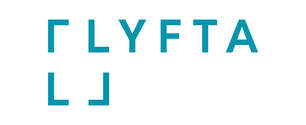 SWIFT sponsor, Lyfta presented on how they bring Character Education into school through an immersive digital platform. Director of Education and Impact, Harriet Marshall explained how Lyfta provides a platform for young people to explore and understand the world and themselves better. They can develop their own character through storyworlds and connect across the world in a social and interpersonal sense. Meaning to “lift up” from the Nordic word, Lyfta attempts to lift the world into view for students. The platform uses carefully curated short documentary films that support character and values through a connection with real-life stories. Schools across all the phases use Lyfta storyworlds as educational resources linked to their curriculum, working with teachers to develop into subject and PSHE Schemes of Work to support lessons and help boost an all-important sense of belonging. Lyfta shows how it is powerful for young people to feel included. At a West London Primary School with 49 different languages, one pupil was moved from watching the storyworld about Deenpal, a young football-loving Sikh growing up in Denmark who tells his own story about striving to be a famous goalkeeper and finding the courage to dive after the ball. It is perhaps the words of a Year 10 student at Upton Court Grammar School who wonderfully encapsulates the work of Lyfta: “I think what you're doing is brilliant… I love that you can learn about people. Because there's a word, it's called sonder. It means, the realisation that everyone has their own story, and everyone has their own life as complex as your own. And that we are all like ants crawling around an anthill, trying to figure out where to go, without looking at other people. And some people, they look at other people and dismiss them, some people look at other people and want to know the story behind them, and Lyfta makes all of us the second kind of person.” Find out more about trying Lyfta for free and benefit from training and access to all the storyworlds for a trial month. 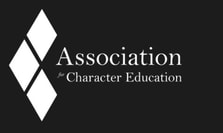 Director of Schools Engagement and Partnership, Andrew Pettit from the Association for Character Education (part of The Jubilee Centre) provided an insight into their bespoke consultation work supporting schools, based on the unwavering belief that character development is essential from nursery to Post-16. Andy Ogden concluded the session by acknowledging schools are often so busy in curriculum development that they need to pull out the core themselves and focus on the internal character of the child and how they see themselves. It is a useful exercise in pushing the reset button after Covid with essential links to identify and a sense of belonging. “It’s not what you put on the plate, but the plate itself.” Schools are re-evaluating and starting a powerful conversation. The SWIFT Character Education Professional Community will continue to build a network of leaders and practitioners across the Southwest who are passionate about designing and implementing holistic educational provision that acknowledges the importance of personal development as well as the importance of academic attainment. Report by Jude Owens, PA to the SWIFT Executive Team 29/11/2022 0 Comments SWIFT Autumn Leadership ForumLevelling Up the South West | Lee Elliot Major OBE “All the secrets are within our own system.” 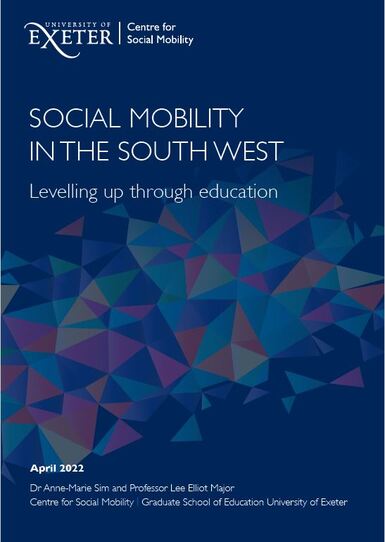 Thanks to the ease of online forums, we were delighted in early November to be joined by Lee Elliot Major OBE as keynote speaker at our Autumn Term Leadership Forum in transit home to the South West from a trip to Norway. As Britain's first Professor of Social Mobility at the University of Exeter, Lee spoke with practical passion on “Levelling Up the South West.” An essential issue that is adding traction to the North-South Westminster debate. Delegates were particularly privileged to be in the audience the day before a hot-off-the-press feature in Schools Week. Lee hardly needed to remind school leaders that the classic images of the South West’s beautiful coastlines and landscapes - and not forgetting, the time-honoured cream tea, can too often mask the level of disadvantage within our region.  As his starting point, Lee explained his involvement in the pivotal “Social Mobility in the South West | Levelling up through Education” report. Supported by the Cobalt Trust, the report published in April 2022 highlighted the region’s poor social mobility and unique challenges, and offered practical and impactful recommendations. Very pleasingly, the report is proving to be a call to action, and has clearly “lit some fires;” successfully bringing people together who have been thinking about the same issues and are now working together to find realistic solutions. The report figures were stark. Educational outcomes for poorer children in the South West are very low. In 2019, disadvantaged pupils in the South West were furthest behind at the end of both the primary and secondary stages of their education. Fewer disadvantaged pupils attained basic English and Maths GCSE qualifications and fewer went on to university than in any other region nationally. Recommendations focus on the following:
Data is being published on the disadvantaged for MATs across the region and nationally, developing a “school scorecard” that is more than the binary free school meals. Lee’s energy and excitement about implementing the report’s recommendations was evident. Aptly, he is an advocate for more explicit policy on levelling up in order to understand disadvantage at a deeper level and to seek how to address some of the issues and “best bets” for improving progress. Lee is working beyond the South West and speaking to lead national providers, as well as presenting to the Labour Front Bench, and the current Government. In case you were wondering (like one of our audiences), what in Lee’s opinion is the single most important thing that schools can do to better support their disadvantaged pupils without any extra funding?
Parental engagement. Too often, it is a weak spot for schools in how they interact with parents. So…as starter advice from Professor of Social Mobility, Lee Elliot Major OBE. Develop a focused parental education strategy: re-think home visits, home school agreements, and parents’ evenings and offer dedicated advisory sessions. Consider neutral meeting venues for those parents who never come into school and communications with parents. Reassuringly, Lee reminded school leaders that excellent practice is already in existence in all schools. Be innovative. Not least as schools face straitened funding in the future. “All the secrets are within our own system.” We thank Lee Elliot Major for joining us at our Autumn Leadership Forum and for sharing his insights and positivity into levelling up the South West. Report by Jude Owens, PA to the SWIFT Executive Team At the start of October, we were glad to be joined by Senior Leaders, Curriculum Leaders and other colleagues for our Autumn Curriculum Forum led by national and regional expert curriculum speakers. The termly Curriculum Forums are designed to explore models and approaches to curriculum design, including the implications of Cognitive Science, and how to prioritise curriculum knowledge and content. The Forums also consider equality, diversity and inclusion and explore how leaders can ensure these values are enshrined across curriculum development, and consider the implementation for inspection and beyond. Part A | Keynotes “The most fundamental reason to choose curiosity isn’t so that we can do better at school or at work. The true beauty of learning stuff, including apparently useless stuff, is that it takes us out of ourselves, reminds us that we are part of a far greater project, one that has been underway for at least as long as human beings have been talking to each other. Other animals don’t share or store their knowledge like we do.” (“Curious: The Desire to Know and Why your Future Depends on it,” Ian Leslie).  "Principles of Meaningful Curriculum Development" | Kat Howard With evident enthusiasm for all things curriculum, Kat Howard opened this launch event with her keynote on “Principles of Meaningful Curriculum Development,” looking at how to align subject and school curriculum and shared her experience and expertise with some invaluable takeaways. Director of a large MAT Teaching School Hub, with experience as a school senior leader, Kat is author of the bestselling “Stop Talking About Wellbeing: a Pragmatic Approach to Teacher Workload” and is also co-author of “Symbiosis: the Curriculum and the Classroom.” An in-house Expert Adviser for the Teacher Development Trust, Kat writes curriculum content for the Reformed NPQ Leadership Suite. Curriculum development is a fundamental aspect of school life and is linked to teacher workload and retention and is one of the reasons teachers often state for leaving their post due to the disconnect and discontentment from wasted time on what they perceive to be fleeting initiatives. Hence the value of ensuring best intentions in crafting a curriculum do not go to waste. Often cited by teachers as the top two bests of teaching are: 1. Talking to students and 2. Teaching their subject. Kat encouraged leaders to empower Subject Leaders to design the curriculum as she believes they are best placed to make decisions about the curriculum and, of course, all subjects are different. Curriculum conversations are a must as curriculum implementation can be a fragile process. Interrogate the problems of the curriculum, explore and prepare the monitoring and evaluation as an ongoing process. Think objectively. Learn to critique. Is your curriculum fit for purpose for your school and students? Even if this means stepping away from an agreed national standpoint. A vital starting point is to create a shared language for the curriculum. Consider whether students can access the information and move to the next stage within the subject curriculum as a granular process. Be more informed by the substance of the teaching and be aware that oracy has an important part to play. Ensure a sense of balance and share as much as possible. Mitigate where misconceptions are more prevalent. Ask the right questions and interrogate the problem in the first place. In understanding the common barriers to curriculum development, leaders need to consider a shared purpose and make peace with the fact that working with children changes every year. Considering professional fulfilment in the process rather than the outcome can make a difference. Curriculum development can be the tension of balancing autonomy whilst contributing to a collective purpose. Prepare teachers in the design and development of the curriculum and work collaboratively together in an atmosphere of support, trust and feedback to improve student outcomes. Ensure everyone feels like a subject expert to teach the curriculum. So, what does your successful curriculum look like? Agree a theory of action process before any changes to the curriculum are made as a dialogical (= the use of conversation or shared dialogue to explore the meaning of something). Be tangible in the way the curriculum is discussed in identifying the problems. Look for evidence through conversations with staff and students. Ask deliberately provocative questions. How does it challenge students’ thinking so they can go out into the world and question for themselves? In sustaining curriculum development, it is essential to keep teachers at the heart and consider: What do we teach? Why do we teach it? Does it look as we imagined? What can we do to build on what’s working? Above all, do not compromise on the curriculum. Kat encouraged leaders to devote three days at the end of the Summer Term as protected time for curriculum discussions. We thank Kat for her energising talk and her guidance and encouragement in developing a meaningful curriculum. Follow Kat on Twitter at @saymiss and read her blogs at www.saymiss.wordpress.com  "Approaches to Decolonising Curriculum Knowledge" | Marlon Moncrieffe School leaders and educators understand the significance of equality and diversity in the curriculum, but this awareness was undoubtedly brought into public prominence and perception by the 2020 Black Lives Matter international protests. Next keynote speaker, Dr Marlon Moncrieffe led on this agenda with his talk on “Approaches to Decolonising Curriculum Knowledge” in how policy relates to theory and practice. Principal Lecturer at the School of Education at the University of Brighton, Marlon is the Knowledge Exchange Leader and Chair of the Research Ethics and Integrity Committee. His academic research work and expertise focuses on decolonising primary school curriculum knowledge with the aim of enabling and advancing critical consciousness in teaching and learning. Formerly a primary school Assistant Headteacher, Head of Maths, English and also Physical Education, Marlon is a Fellow of the Chartered College of Teaching and Council Member of the British Educational Research Association. As part of his research, Marlon engaged with the UK Parliament and House of Commons Education Committee to share his work; and through the Chartered College of Teaching, he has created resources that champion inclusive and equitable approaches to education, teaching and learning and to guide teachers in how to have confident conversations in the classroom. A child of the Windrush generation, Marlon reported how his research into centring the “Black” British voice in teaching and learning has found that nothing much has changed in the History curriculum from a UK perspective. The colonial time-warp persists with the past recurring in the present: from the slave rebellions across the Caribbean up to the Black Lives Matter antiracism protests in the 21st Century. It is a false justification of the hierarchical power of one racial group to be given more privileges in society. Macpherson’s recommendations in response to the murder of black British teenager Stephen Lawrence called for the decolonisation of curriculum knowledge and antiracist education to combat institutional racism. However, the National Curriculum has not changed in response to Macpherson’s recommendations. Teaching and Learning of British History has come under sharper scrutiny with calls for changes to the Conservative National Curriculum History getting louder and over a quarter of a million people signed a public petition calling for cultural diversity with Marlon working alongside other academics to share their findings. However, in response, the Government maintained that the Gove Education Curriculum Policy was “broad, balanced and flexible.” Yet Marlon showed how this denies the dominance of the one-dimensional Anglocentric and Eurocentric (= whites only) historical starting points throughout the statutory National Curriculum content, e.g. “Britain’s settlement by Anglo-Saxons and Scots” and “the Vikings and Anglo-Saxon struggle for the Kingdom of England.” Multicultural Britain = diversity in white and black. A curriculum should be broad or else it risks being narcissistic and, in this case, the British Government become the History-makers of identity. A hegemonic (= ruling or dominant in a political or social context) curriculum creates narratives for teachers to deliver. But it is important to be critically conscious. Time can bring about change in political consciousness and this can be challenged for relevance for the now and the future. Too often, Marlon found that when teachers are asked what British History in the curriculum means to them, they simply restate the National Curriculum content and their own existing knowledge, e.g. the Tudors, World War I and II. In other words, Anglocentric History as a cultural preproduction. Hence the value of a critical historical consciousness in the curriculum and as teachers, to take note when drawing up Schemes of Work to challenge policy and reform. We thank Marlon for his thought-provoking presentation and the reminder that it is good to challenge our sense of history across the British Isles. Follow Marlon on Twitter at @DrMoncrieffe Part B | Workshops  Part B of the Curriculum Forum was opportunity for delegates to choose from a range of phase-specific workshops. Amy Le Bredonchel | Primary | Curriculum Design: Knowing, Thinking and Communicating. Based on the principles of a Trivium approach, this workshop presented the principles behind a linked curriculum that ensures progression, retrieval and opportunities and showed how the questions ‘Why this? Why now?’ have been addressed, underpinned by the aim that remembering more, is knowing more. Ruhaina Alford | Primary | Whose Culture has Capital? Approaches to diversifying your curriculum to prepare children to be global citizens. Exploring the rationale behind why we should be doing this work; this workshop explored practical examples in various curriculum areas as to how we can reframe how we teach. Re-examining how certain subjects are taught through a western or colonial lens, and re-framing. Tom Graham | Secondary | Prioritising the curriculum at a whole-school level. This workshop explored how a focus on curriculum at whole-school level has helped to drive a deeper understanding of curriculum by all teachers and explored the structures to train teachers and quality assure the curriculum within a secondary school setting. Holly Pennington | Early Years | Language Led Learning – closing the word gap in the Early Years. This workshop looked at how this language-led spiral curriculum is implemented over an academic year, and the impact on children’s transition into Reception and beyond. Toni Smyth | Primary | Supporting primary schools to transform P.E. experiences for EVERY child, teacher and family. Given ambitious P.E. curriculums have the potential to transform experiences for every child, this workshop explored the intent and how schools can use the P.E. Premium for solutions that support teachers to implement effectively P.E., and have the greatest impact on the children in their care. Matt Pennington | Primary | How can Cognitive Science Drive Greater Outcomes for Early Readers? This workshop explained the intent of designing an early reading curriculum centred on Cognitive Science and looked at the implementation and how the cognitive science is embedded in long, medium and short-term planning and the significant impact it is making on the lowest 20% of pupils through quality first teaching. Annabel Skelton | Secondary | 'Book Club': The Jewel in the English Curriculum Crown. Book Club is an hour a week for all Key Stage 3 students, and is dedicated to the reading and academic discussion of a challenging text that complements learning within the curriculum. Using reciprocal reading strategies: summarising, clarifying, predicting and questioning, it explains how students are encouraged to see themselves as literary critics: building background knowledge, developing vocabulary and improving reading fluency. Harriet Marshall | Crossphase | A curriculum that prepares for life, learning and work through the UN’s Sustainable Development Goals. The UN’s Sustainable Development Goals (SDGs or Global Goals) are an ambitious framework for not only a better world, but also for a relevant and empowering school curriculum. This workshop looked at why a growing number of schools are developing their curriculum by linking to the 17 SDGs. Anthony Lees | Approaches to Formative Assessment in Primary Computing. This workshop considered and exemplified a range of formative, low stakes assessment mechanisms for instant feedback for teachers and learners through the lens of Primary Computing and considered how Computer Science concepts, such as sequence, repetition and condition can be reviewed with a range of digital tools and become embedded in the learning cycle for teachers and pupils. We thank and are grateful to all our contributors for sharing their curriculum experience and expertise, and providing considered sessions for our Curriculum Forum. Watch out on our social media channels for details of the Spring Term Curriculum Forum. Report by Jude Owens, PA to the SWIFT Executive Team ESW Associate & Strategic Leader of Teaching & Research Schools | Education South West Roger Pope CBE opens this October issue reflecting on the concept of a servant leader in the context of the recent passing of Her Majesty the Queen:
"The very fact that you are reading our SWIFT newsletter suggests to me that you have a predilection for this kind of leadership. To be passionate about staff development means at least two of those servant leader traits are core to your vision and purpose as a leader: commitment to the growth of people and building community." In this first issue of the new school year, you can read about the launch of the SWIFT WalkThrus programme, the first SWIFT History Masterclass on Literacy and Vocabulary: The Power of Words led by Josh Vallance of Oasis Academies and gain an insight into the role of one of our Directors + more besides PLUS features from our sponsors. |
SWIFT News
|
SPONSORED BY
Join us, be a part of our SWIFT community |
© COPYRIGHT 2022 SOUTH WEST INSTITUTE FOR TEACHING SWIFT. ALL RIGHTS RESERVED | Website by brightblueC
VIEW OUR PRIVACY NOTICES | VIEW OUR COURSE T&CS
VIEW OUR PRIVACY NOTICES | VIEW OUR COURSE T&CS




































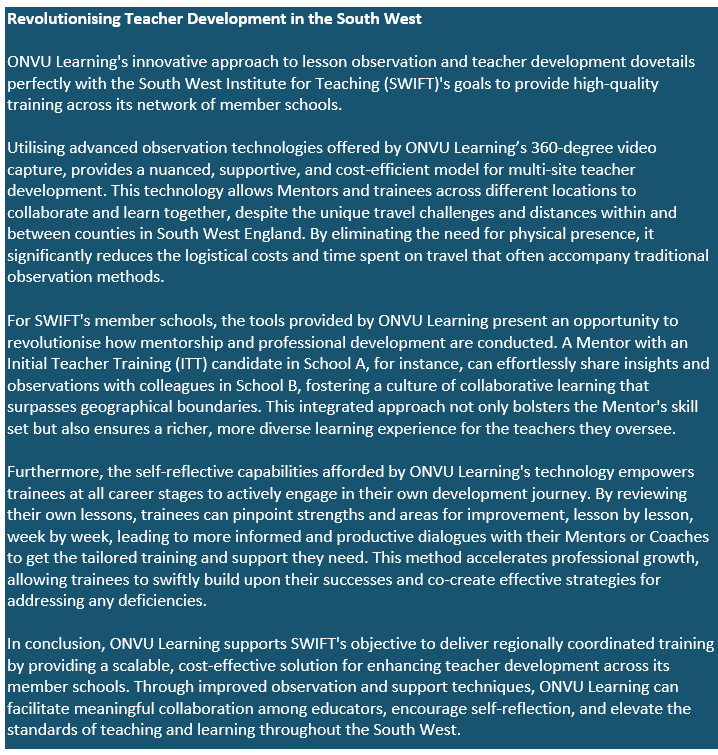




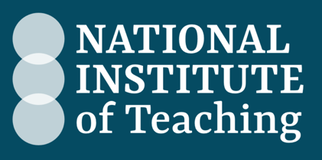
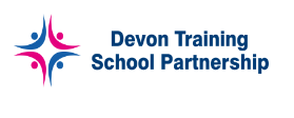







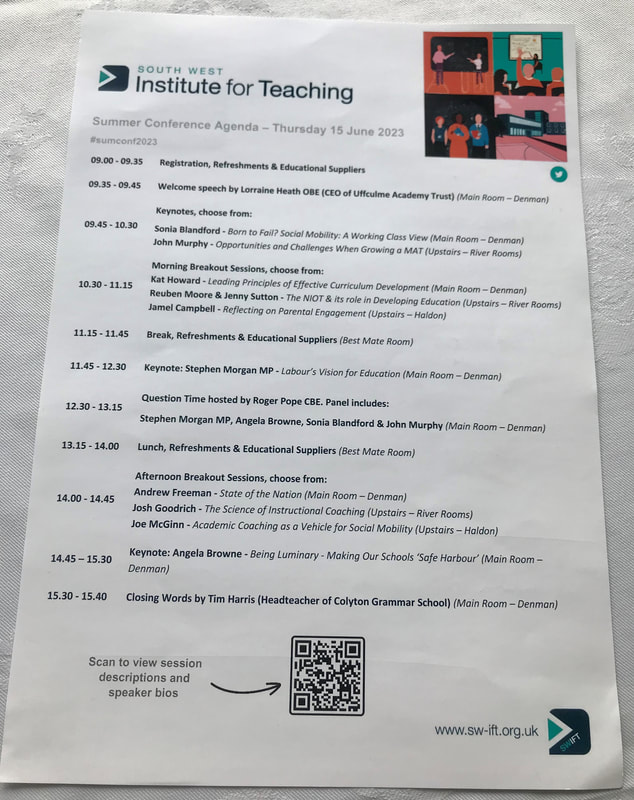
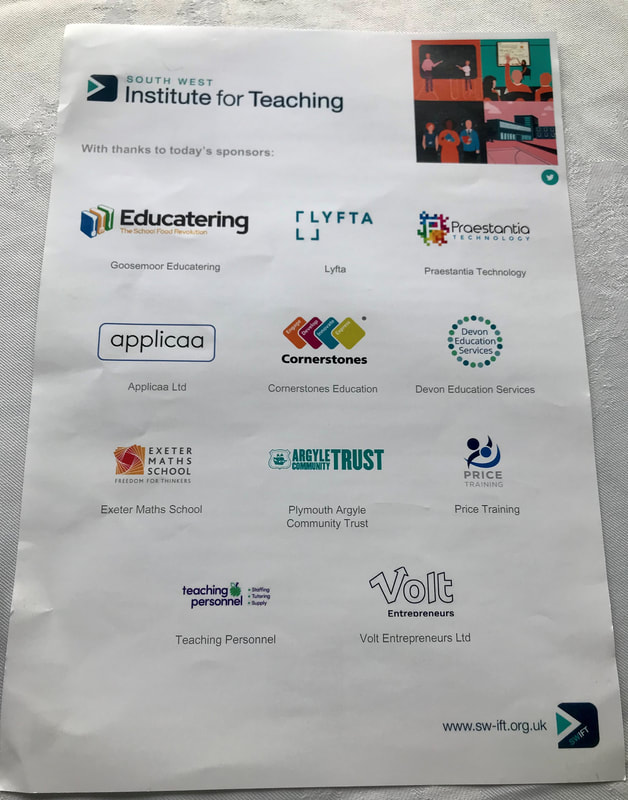
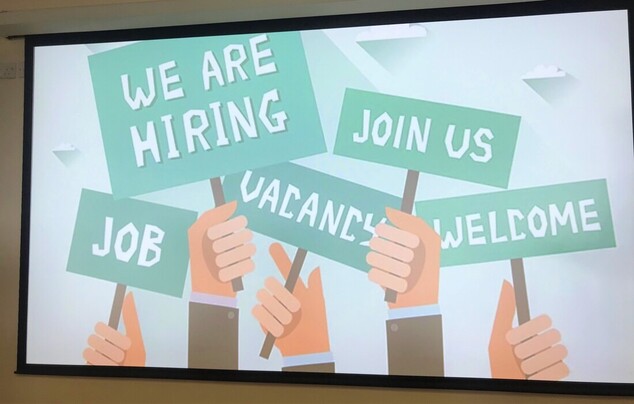


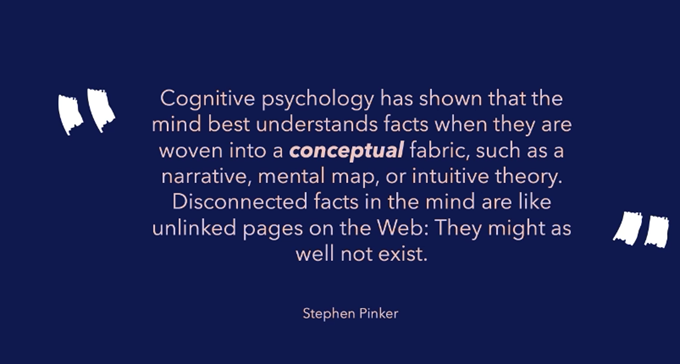

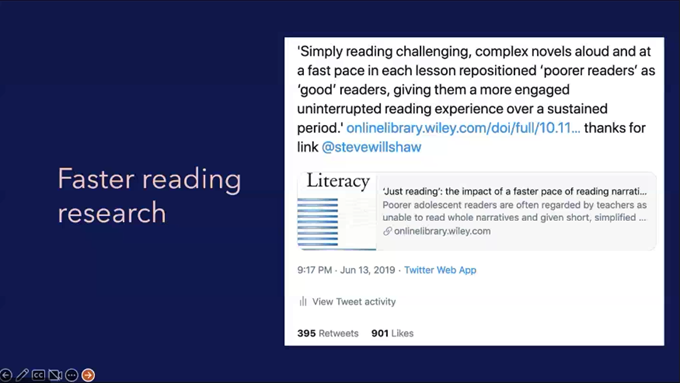
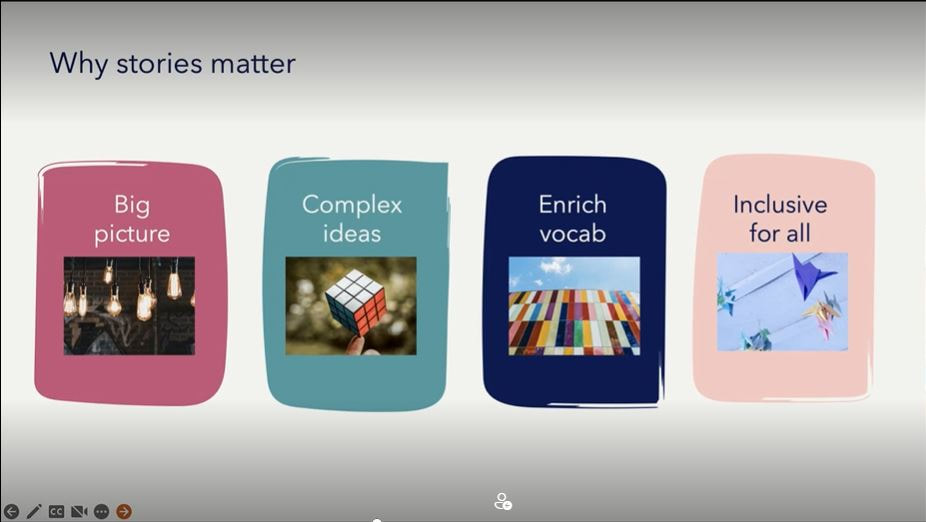

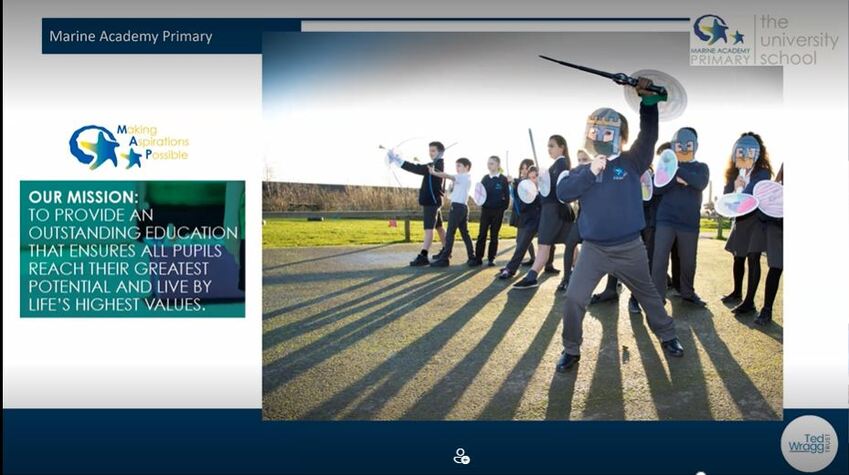
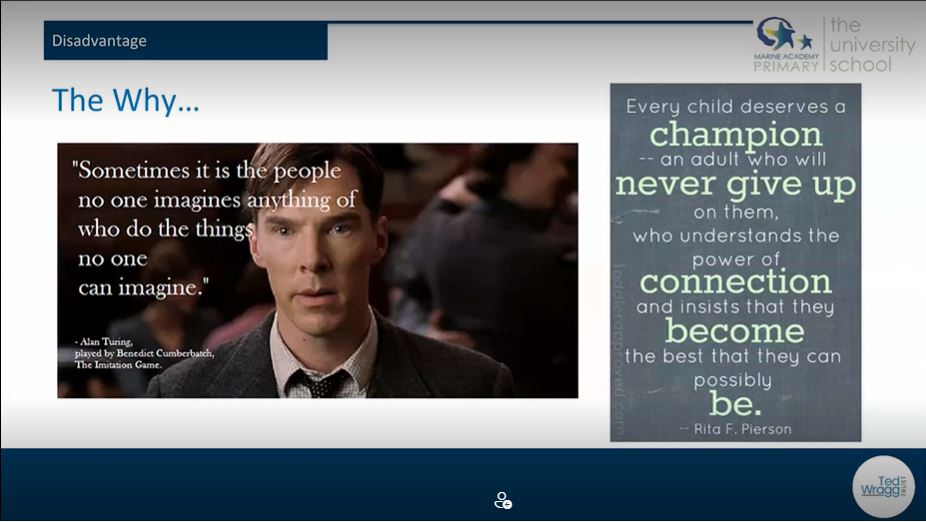
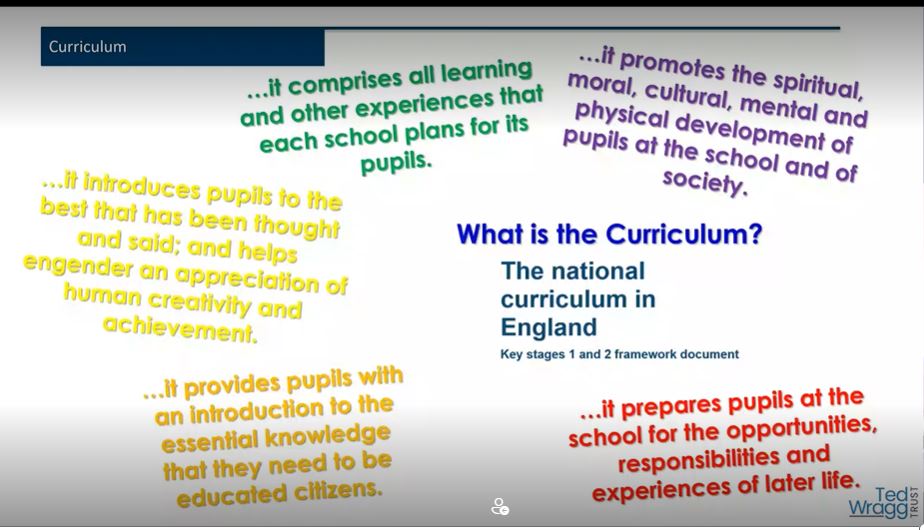
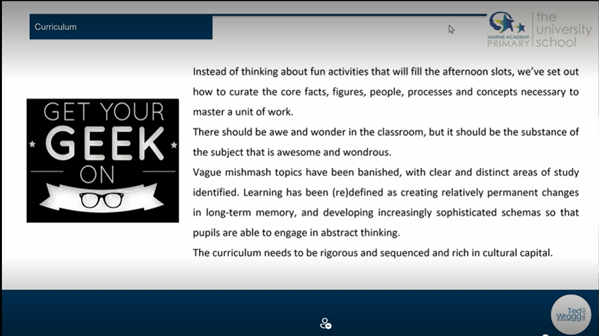
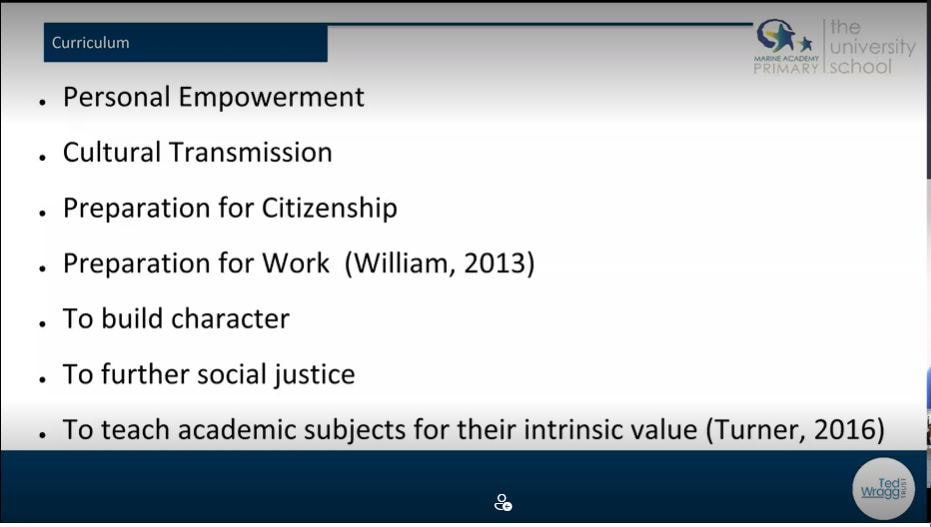
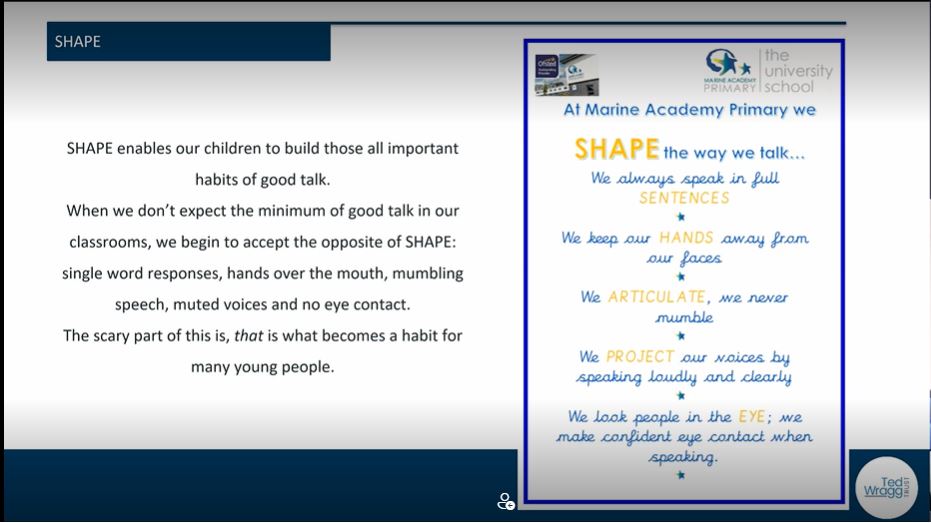
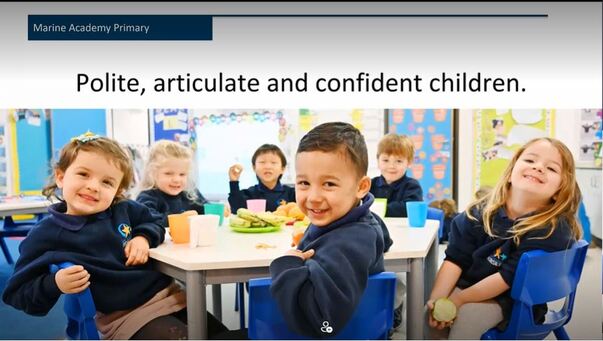
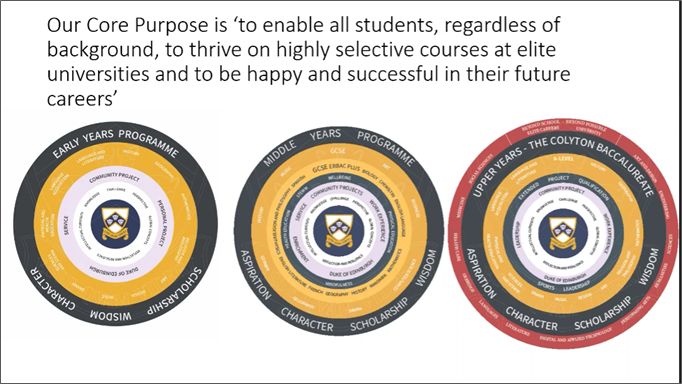


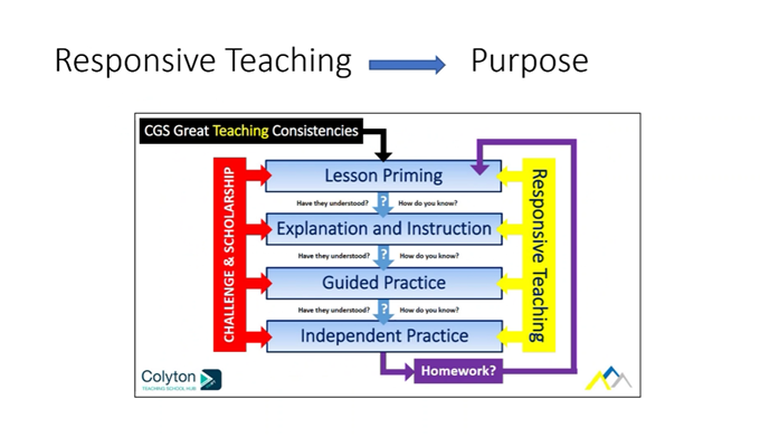
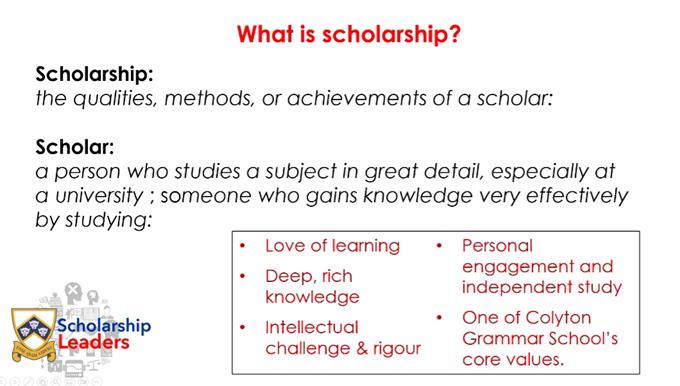
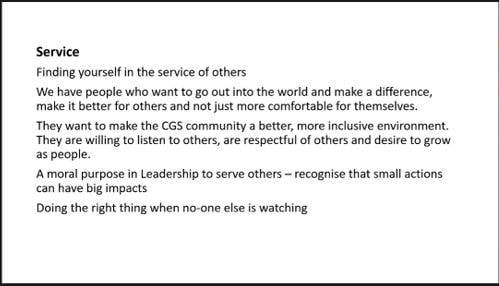
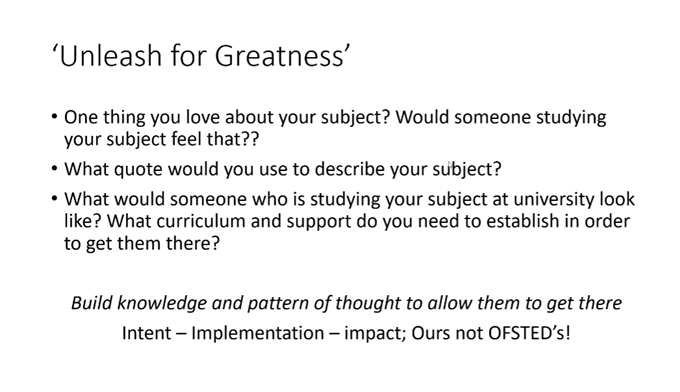
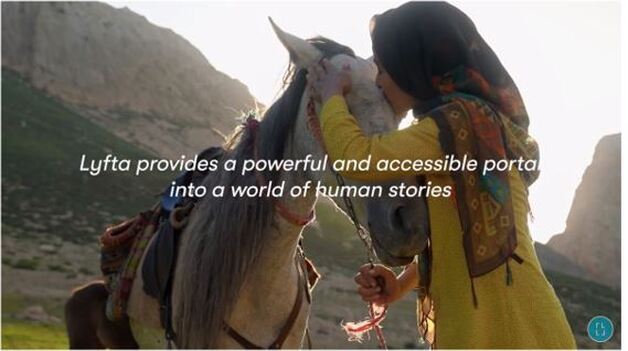
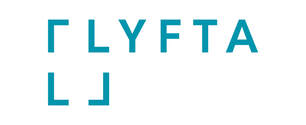





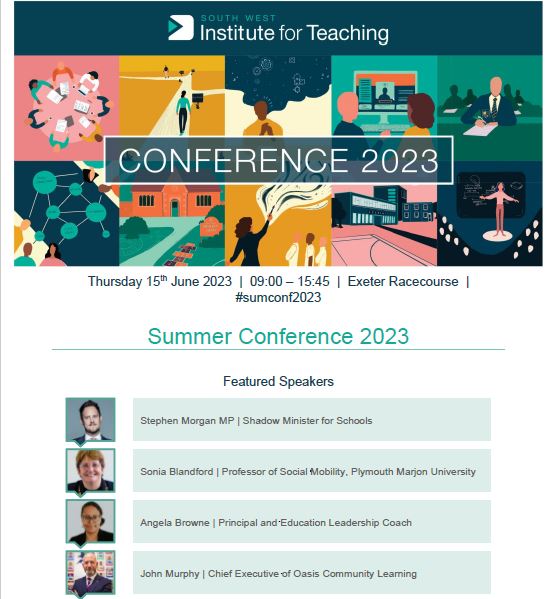

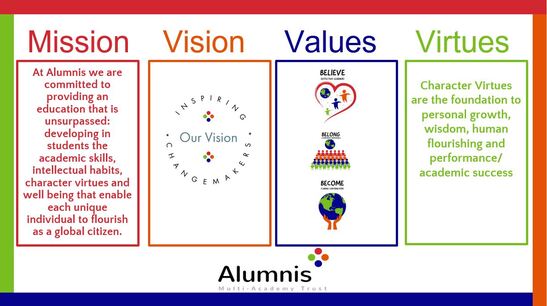
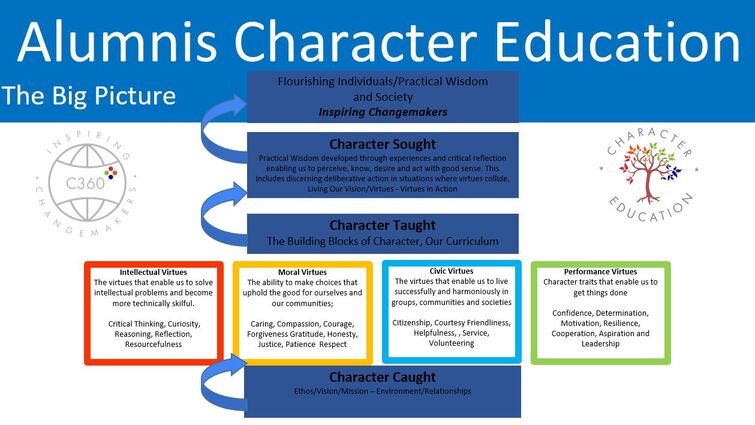
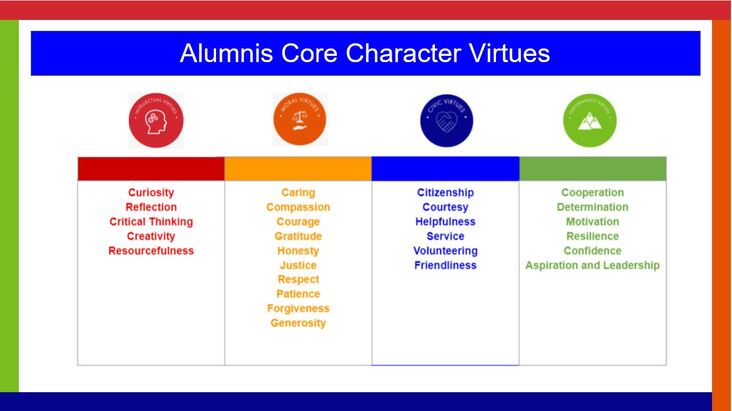
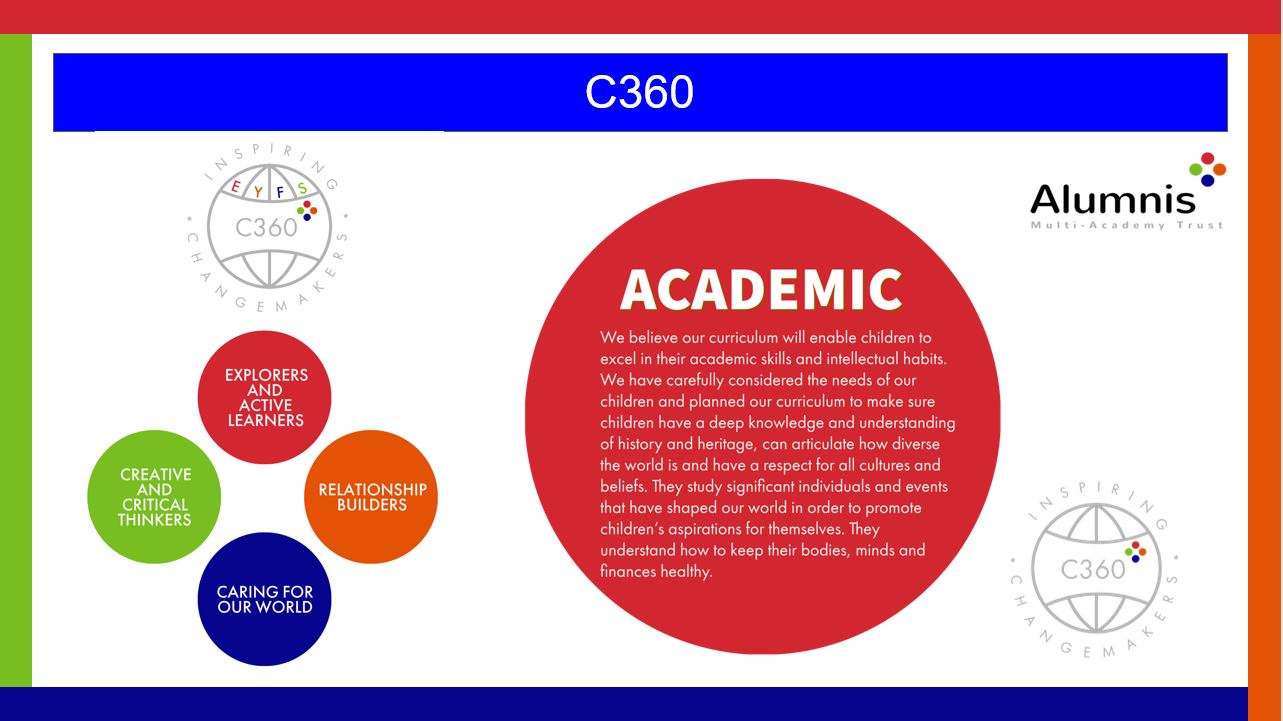
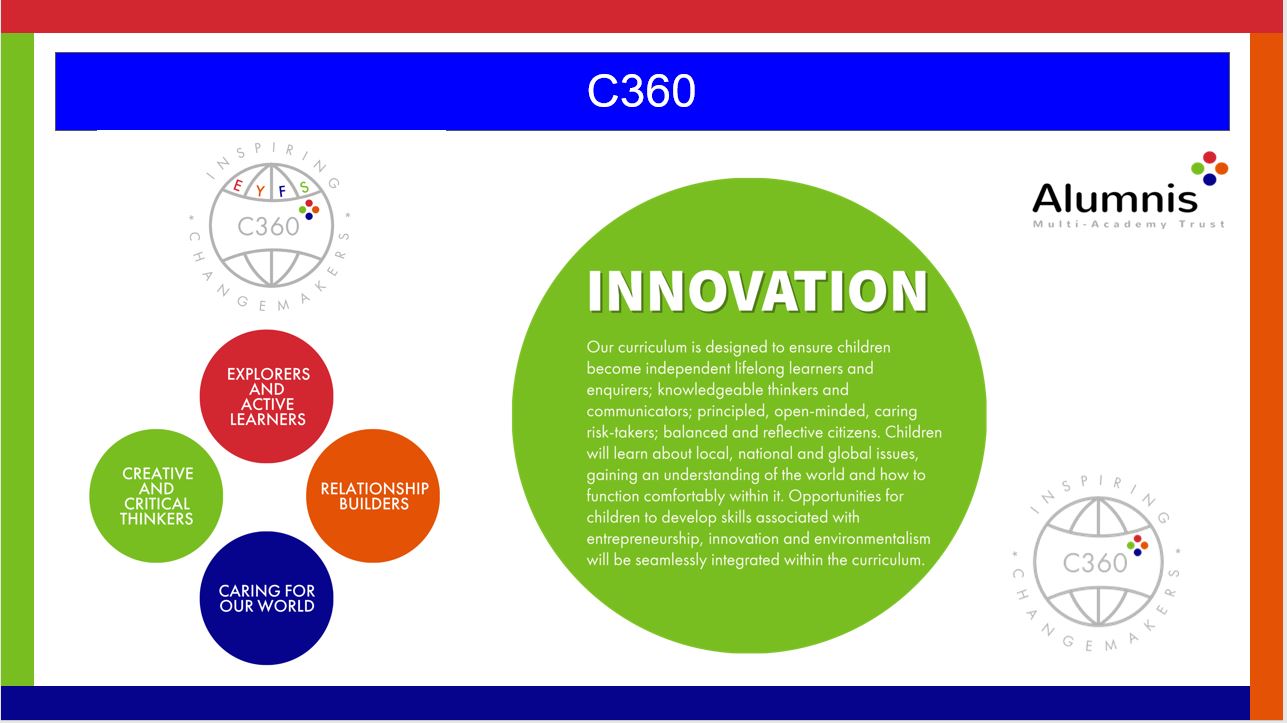

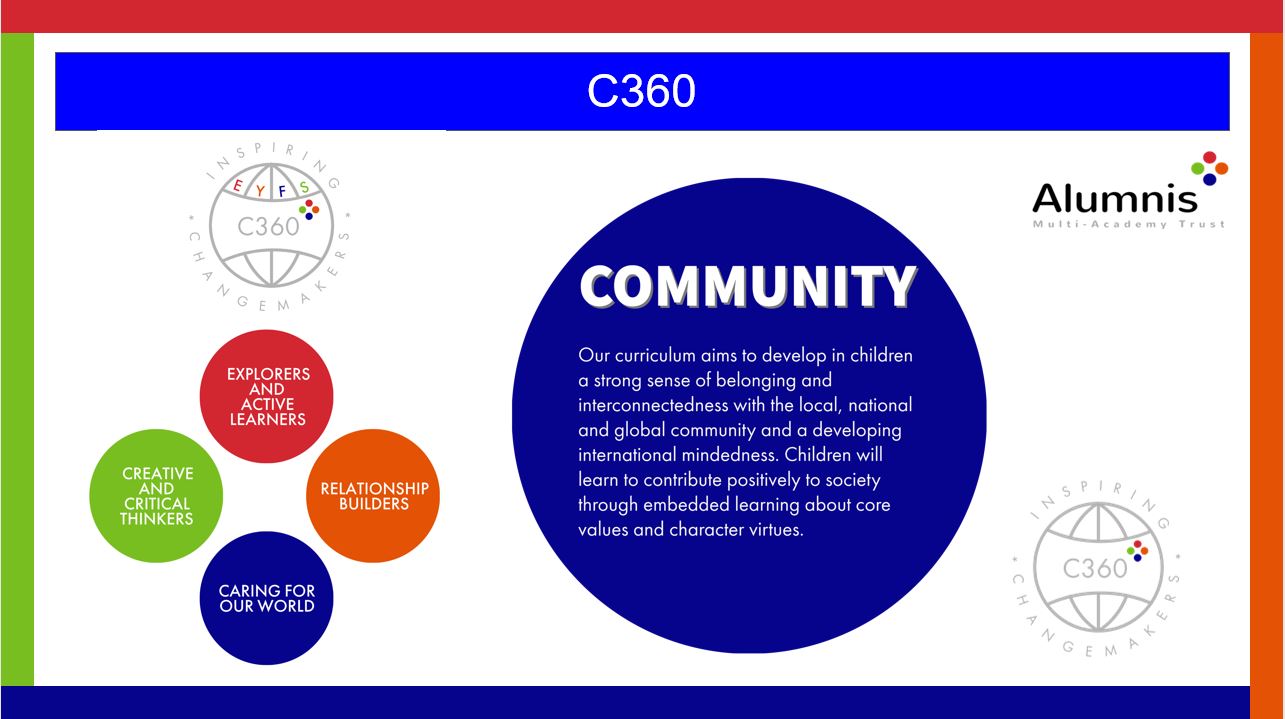

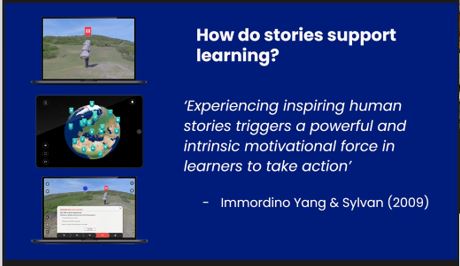
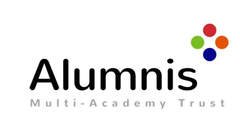
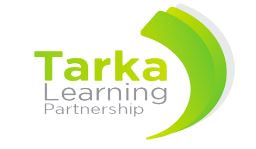
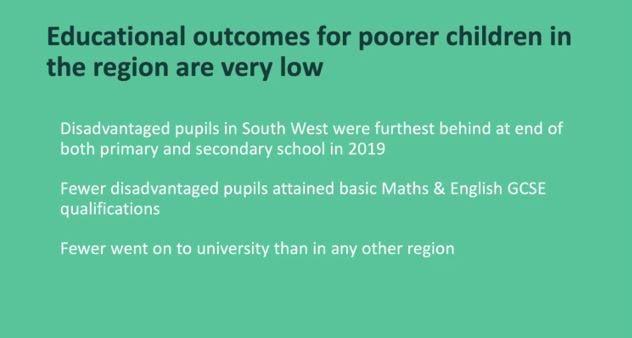
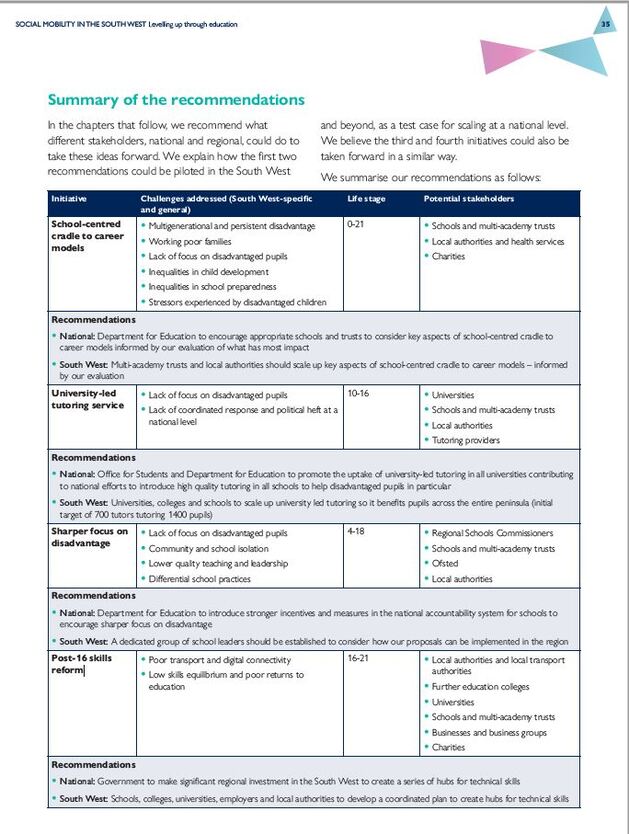
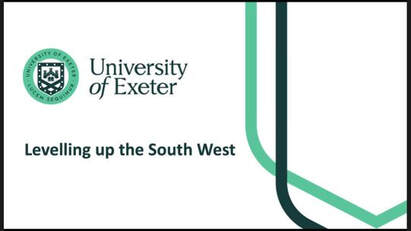


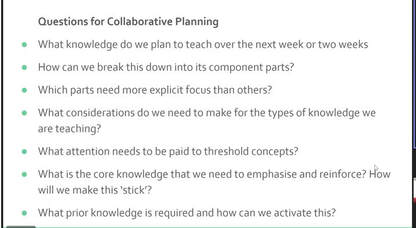

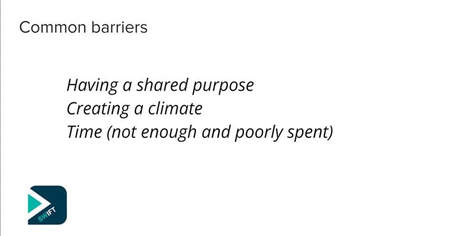
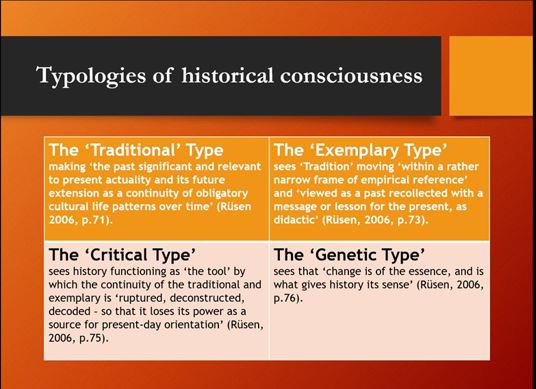

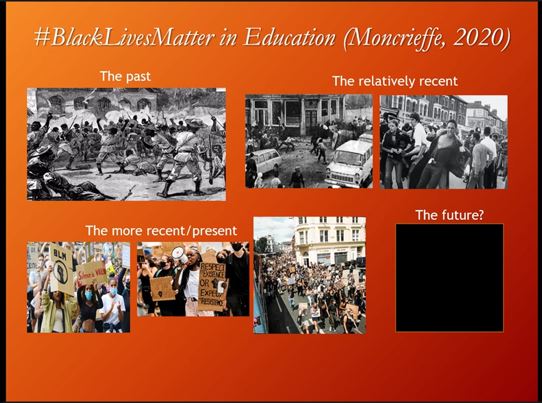
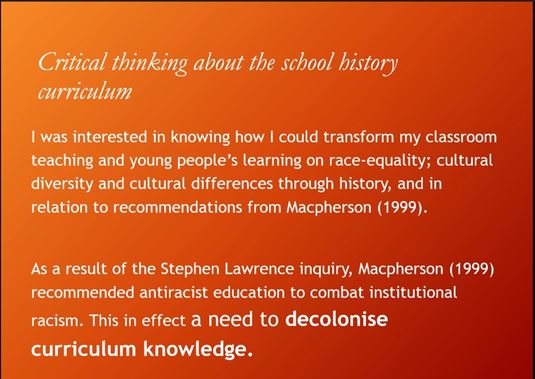
 RSS Feed
RSS Feed





